Essential digital safety skills for LGBTI movement in 2025

Building on last year’s successful security learning series, we’re excited to introduce a new, hands-on programme designed specifically for LGBTI activists, in association with our partner organisation: AccessNow, and trainer Oleg Serov.
As online threats evolve, so must our strategies to stay safe. In our new learning sessions, we’re offering actionable steps to help you protect your privacy, reduce digital risks, and tackle AI-driven challenges head-on.
What to Expect
Every Wednesday, starting April 2, we’ll host a 90-minute webinar focused on practical digital security skills, including:
Engaging Safely with AI
As AI tools become more integrated into activism and daily digital interactions, they bring new risks. Learn how to use AI effectively while safeguarding sensitive information, preventing data exposure, and protecting the privacy of your work and community.
Minimizing the Impact of Doxing
Doxing—exposing private or identifying information—can have dangerous consequences. Gain strategies to reduce the risk of doxing and keep both your personal safety and your team’s security intact.
Tackling the Effects of Harmful Bots
Harmful bots spread misinformation, amplify harassment, and disrupt activism. Learn how to recognise bot-driven attacks, mitigate their impact, and protect your digital spaces from manipulation and coordinated disinformation campaigns.
Who should join?
LGBTI groups from Europe and Central Asia seeking to strengthen their digital security. This series is designed to be skills-focused, offering you concrete tools to strengthen your digital security and make online activism safer. Whether you’re new to these issues or seeking to deepen your knowledge, these sessions will provide up-to-date, actionable insights.
Dates & Registration
| # | Topics | Language | Date | Time | Registration |
| 1 | Engaging Safely with AI | Russian | April 2 | 10:00 CEST | Register now. |
| 2 | Engaging Safely with AI | English | April 9 | 10:00 CEST | Register now. |
| 3 | Doxing | Russian | April 16 | 10:00 CEST | Register now. |
| 4 | Doxing | English | April 23 | 10:00 CEST | Register now. |
| 5 | Harmful Bots | Russian | April 30 | 10:00 CEST | Register now. |
| 6 | Harmful Bots | English | May 7 | 10:00 CEST | Register now. |
To ensure a safe and dedicated space, registration forms will be approved individually. If you are approved, you will receive a link to the event.
Цифровая безопасность для ЛГБТИ-групп в 2025 году: основные навыки.
Примите участвие в нашей программе по цифровой безопасности для ЛГБТИ-групп, которая начнется 2-го апреля. Узнайте, как защитить свою конфиденциальность, противостоять цифровым угрозам и управлять рисками ИИ с помощью практических навыков, которые укрепят ваш активизм.
В прошлом году мы провели серию обучающих мероприятий по цифровой безопасности, и сейчас мы рады представить вам новую ориентированную на практику программу, разработанную специально для ЛГБТИ-движения в сотрудничестве с организацией AccessNow и с тренером Олегом Серовым.
По мере развития цифровых угроз должны развиваться и наши стратегии безопасности. На наших новых вебинарах мы расскажем о конкретных шагах, которые помогут вам защитить свою конфиденциальность, снизить цифровые риски и лучше понимать проблемы, связанные с использованием ИИ.
Формат и время
Каждую среду, начиная со 2 апреля 2025 года, мы будем проводить 90-минутные вебинары, посвященные практическим навыкам цифровой безопасности с 10:00 до 11:30, по Брюсселю. Каждый вебинар будет посвящен конкретной теме:
Безопасное взаимодействие с ИИ
Поскольку инструменты ИИ все больше интегрируются в активизм и повседневное цифровое взаимодействие, они несут с собой новые риски. Искусственный интеллект становится все более важной частью активисткой работы, и нашей жизни в целом, и это несет новые для нас риски. Узнайте, как эффективно использовать ИИ, защищая конфиденциальную информацию, предотвращая раскрытие данных и защищая конфиденциальность вашей работы и ЛГБТИ-сообщества.
Дата и время: 2-е апреля, 10:00 СЕSТ
Регистрация*: https://ilga-europe-org.zoom.us/meeting/register/PuY83HR4SDCjviBQkyF1cg
Минимизация последствий доксинга
Доксинг — раскрытие личной или позволяющей идентифицировать человека информации — может иметь опасные последствия. Узнайте о том, как снизить риск доксинга и сохранить как вашу личную безопасность, так и безопасность вашей команды.
Дата и время: 16-е апреля, 10:00 СЕSТ
Регистрация*: https://ilga-europe-org.zoom.us/meeting/register/XoPR0ebASnudvx6OJMgeTQ
Противодействие вредоносным ботам: существующие практики
Вредоносные боты распространяют дезинформацию, способствуют преследованиям и подрывают активизм. Узнайте, как распознавать атаки, управляемые ботами, смягчать их последствия и защищать свое цифровое пространство от манипуляций и скоординированных кампаний по дезинформации.
Дата и время: 30-е апреля, 10:00 СЕSТ
Регистрация*: https://ilga-europe-org.zoom.us/meeting/register/X3m9T4f3T46oy8Dl_Mb1fQ
Кто может записаться?
ЛГБТИ-группы из Европы и Центральной Азии, стремящиеся укрепить свою цифровую безопасность. Эта серия разработана с упором на навыки, предлагая вам конкретные инструменты для укрепления вашей цифровой безопасности и повышения безопасности онлайн-активизма. Независимо от того, являетесь ли вы новичком в этих вопросах или хотите углубить свои знания, эти сессии предоставят вам актуальные, рабочие идеи.
* Чтобы обеспечить безопасное пространство, регистрационные формы будут одобрены индивидуально. Если вас одобрят, вы получите ссылку на мероприятие.
Joint input for the European Democracy Shield
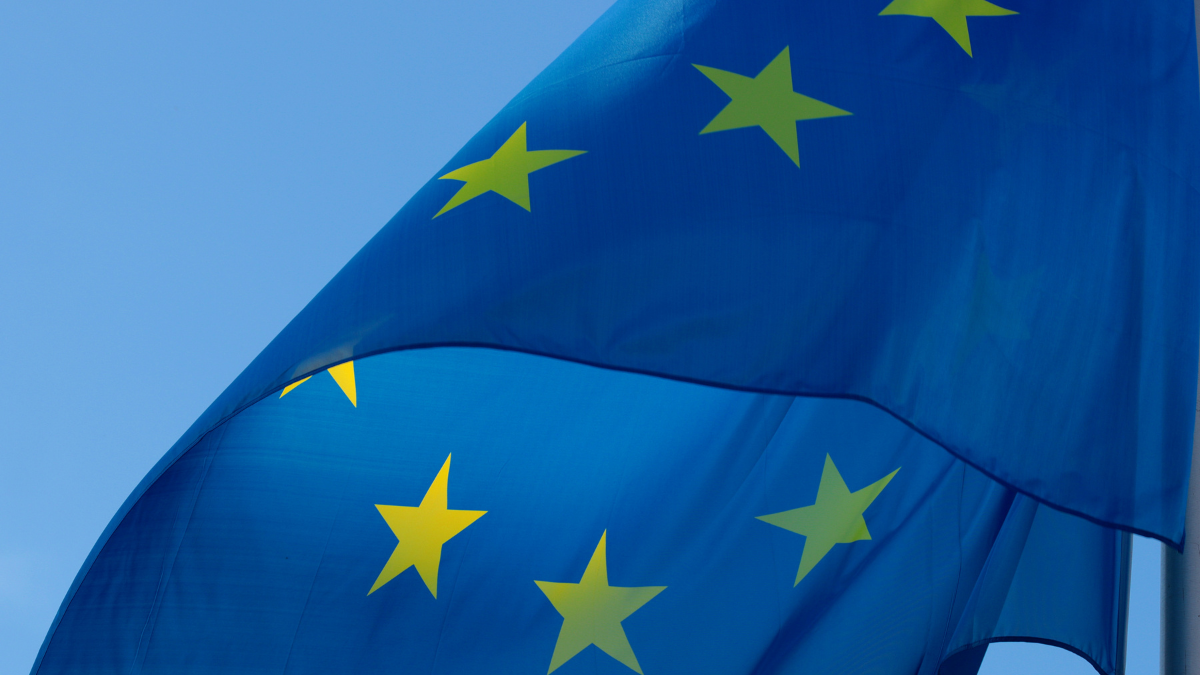
ILGA-Europe has joined a statement from civil society organisations in support of the European Democracy Shield. Coordinated by the European Partnership for Democracy, the statement was signed by 50 organisations dedicated to supporting democracy.
As organisations working to support and develop democracy, we welcome the European Commission’s initiative to create a European Democracy Shield as a coordinated effort to support democracy in and around Europe. This initiative is particularly relevant in the current context of global democratic backsliding.
Given the Shield’s thematic focus on the information space, election integrity, and civic engagement, we see it as a natural successor to the European Democracy Action Plan (EDAP). EDAP saw the introduction of the European Media Freedom Act (EMFA), the Anti-SLAPP Directive, a revamped Code of Practice on Disinformation, and the Regulation on the Transparency and Targeting of Political Advertising (TTPA), among others, which are all vital steps towards creating healthier European democracies. Complementing the EDAP, legislation was passed such as the Digital Services Act (DSA), the Digital Markets Act (DMA), and the AI Act that regulate technological advancements in line with democratic standards.
Taking into consideration the Commission’s core priorities on democracy, including the rule of law and fundamental rights, the Shield should use this legislative basis with increased determination and ambition, to achieve concrete improvements over the next mandate.
Priority areas
In order to ensure that the European Democracy Shield effectively responds to the challenges faced by democracy in Europe, it is vital that it addresses the following priorities:
- The legislation to underpin the protection of democracy in Europe exists. The European Democracy Shield should enable the swift and effective implementation and enforcement of existing legislation in this domain – such as the Digital Services Act (DSA), Digital Markets Act (DMA) the Regulation on the Targeting and Transparency of Political Advertising (TTPA), the European Media Freedom Act (EMFA) and the AI Act.
- The Commission plays a vital role in enforcing the existing rules and elaborating on legislation through delegated acts, guidelines and Codes of Conduct. Both political will and adequate resourcing of the EU institutions and other democracy stakeholders is crucial for this.
- At a time of significant geopolitical uncertainty, it is of ever greater importance for the EU to stand by the standards it has set. Weakening them at this stage will embolden leaders with authoritarian tendencies and only increase the threats posed to European democracies in the short-run as well as in the long-run.
- The Commission should promote safe harbour protections for researchers examining online platforms and AI, in line with the above legislation, to prevent intimidation and legal risks from having a restrictive effect on research that is in the public interest. This can be done by developing Guidelines on non-prosecution – to be spearheaded by the Commission’s DSA Unit or the AI office – and an exemption from civil liability similar to the protection of software vulnerability reporting.
- The Democracy Shield should be coordinated with other work in the Rule of Law dialogue, especially around checks and balances as provided by independent authorities, rule of law institutions, and parliamentary strengthening. Areas for specific coordination might include further promotion of political finance rules on campaigns and advertising, as well as campaign data.
2. Combatting disinformation is a necessary and inevitable component of the democracy support agenda. While the focus has often been on Foreign Information Manipulation and Interference (FIMI), equal importance should be given to countering domestic disinformation, which accounts for a significant portion of overall disinformation operations. The fight against disinformation however, must not come at the expense of free and independent journalism.
Given the vast proliferation of disinformation, structural solutions should be favoured over reactive ones. Ad hoc efforts are often too little, too late, and cannot address the magnitude of the problem.
- Disinformation should be demonetised. The business model of online platforms and online advertising currently incentivises the spread of disinformation given its propensity to go viral and therefore generate revenue. This should be countered in advertising design to avoid the abuse of such models by specific platforms or opinion- and decision-makers. For-profit platform providers, however, will not take such measures by themselves, but rather adapt their internal policies according to the current political climate and profit considerations, such as in the case of Meta’s changes to their content moderation policies.
- Achieving equal access to quality content moderation across all European languages and communities is crucial for fostering an equitable environment for expression.
- Fact-checking is important, but checking every piece of information available online is impossible. It must therefore be accompanied by integrated media literacy programmes so that people are taught how to critically assess information even when not fact-checked. The Commission should therefore support Member States in integrating flexible media literacy programmes into their education systems, which can adapt along with rapid changes in the information environment. While youth should be a key focus, media education must also be promoted as a lifelong learning process, ensuring that all generations develop the necessary critical thinking skills to resist manipulation in an ever-evolving information landscape – this can be done in libraries, senior citizen centres, or in professional settings.
- The DSA and the TTPA should be enforced to ensure that the models and tools used by online platforms are brought in line with existing legislation and democratic standards. This is of particular importance to ensure the integrity of elections, as online platforms are increasingly determining key narratives in electoral campaigns through both framing and platforming – often in opaque ways. Examples include TikTok’s role in determining the Romanian presidential elections, and X’s platforming of Germany’s AFD party ahead of the parliamentary elections. The current lack of transparency, accountability, and resources is a major obstacle to mitigating this risk.
- Investing in alternative models is paramount and should be accompanied by a broader reflection on the business model of online platforms. The current tracking ads-based for-profit model has been proven to enable the disproportionate spread of disinformation online, increase polarisation, and make it extremely difficult to tackle the issue without structural solutions. One example is creating digital public infrastructure in social media that is governed by and for citizens. These alternative models should be optimised for healthy public debates rather than stimulating user addiction for profit.
3. A robust media sector working in the public interest is one of the strongest guarantees against the harmful effects of disinformation and polarisation. Yet the space for media freedom is under threat around Europe and journalists face harassment, intimidation, and physical attacks for simply carrying out their work. The sector has also been struggling financially for a long time. This is exacerbated by the tracking ads industry favouring Very Large Online Platforms and having led to an estimated 50-70 percent decrease in advertising revenue for news publishers (source). At the same time, the sector faces increasing media capture (examples include Hungary and Slovakia) and threats to its independence through the consolidation of media ownership.
The growing challenge of countering the avalanche of disinformation has become an existential threat to many independent outlets. As such, it is of crucial importance for the EU to allocate adequate resources to keep the independent sector operational and able to hold its weight against disinformation narratives. This has become all the more important since the US funding freeze, which significantly affected the media sector. The current Multi-Annual Financial Framework (MFF) includes 1.42 billion EUR for the media strand of the Creative Europe programme for 2021-2027. Meanwhile, Russia spent the same amount on media in 2021 alone. It is clear that the independent media sector cannot be a robust counterbalance to the barrages of disinformation without stronger institutional support.
- Commit to considerably increasing media funding. Commissioner Kos’ commitment to doubling funding for media in the European Neighbourhood is an important step in the right direction, but it is not enough compared to the level of funding provided by other foreign actors.
- The types of funding given to the media should be reviewed and expanded. While the majority of media support currently consists of project-based funding and business development support, there is a much broader range of support necessary to boost the sector and help it operate in a healthy way, conducive to its mission of informing the public and providing a counterweight to disinformation narratives. Key among them is the need for more direct core support, as stipulated in the Media Viability Manifesto.
- Expand and strengthen the work of the European Commission to further member states’ efforts to improve the safety of journalists, including through the ongoing implementation of the 2021 Safety of Journalists Recommendation.
- Commit to redressing the current economic model to ensure sustainable media by rebalancing the economic power between news media and the platforms who profit from their content, including by requiring platforms to pay for journalistic content and redressing the imbalance in the advertising market.
4. The European Union is not an isolated entity, and its information space is heavily affected by, and interlinked with, that of neighbouring regions. As such the European Democracy Shield should encompass both an internal and external dimension. Strengthening democratic standards in neighbouring regions will inevitably create a more stable environment for the European Union. Recent election campaigns in Moldova and Georgia heavily focused on the countries’ European future, with disinformation significantly endangering it in the former, and creeping authoritarianism halting it in the latter.
- The protections ensured through the European Democracy Shield should be extended to candidate countries in order to allow for the better protection of democracies in the European Neighbourhood. This will also be a clear sign of commitment from the EU to the enlargement process, which is particularly necessary in the Western Balkans where the level of scepticism regarding enlargement keeps increasing.
- At the same time, knowledge transfers should be enabled from outside the Union, given that pro-democracy actors from the European Neighbourhood and beyond have significant experience in fighting disinformation and other threats to democracy.
5. A pluralistic European civil society1 is crucial to upholding democracy as well as the values outlined in Art. 2 TEU. There should be a stronger commitment to ensuring an enabling environment for civil society to operate in, and for citizens to mobilise and make their voices heard. The legitimacy of civil society to participate in policy making, to play its watchdog role, and to act in the public interest is being questioned and in some contexts the very existence of an independent civil society and activism is under threat.
- Through the Shield, the EU Commission should set up robust monitoring and protection mechanisms for civic space within the EU, including a focus on rapid response protection for human rights defenders, and other vulnerable and marginalised groups. It should also coordinate with the announced Civil Society Strategy in order to ensure synergies.
- This should be accompanied by dedicating adequate funding to support civil society in its mission, including core funding. Civil society will be a key partner in forging the Democracy Shield and adequate resourcing will therefore increase the impact of the initiative.
- Acknowledge that existing administrative procedures for civil society serve the purpose of transparency and impartiality. Further attempts at increasing the administrative burden for CSOs should be seen as a restriction of civic space by redirecting resources away from the protection of democracy and towards bureaucratic compliance, which is to the detriment of European democracy.
- As with SMEs, the Commission should consider using the proposed 28th Regime for companies to simplify EU-wide operations by non-profits.
- The Shield should reaffirm the legitimacy and importance of civil society in policy making through inclusive, transparent and open-structured civil dialogue.
6. As a foundational value of the EU, democracy should be at the core of the EU’s security and defence strategy. Such a strategy must ensure that fundamental rights and democratic standards are not sacrificed in the name of strengthening Europe’s security. While existing within the democracy/security nexus, the European Democracy Shield should at all levels align with and uphold the fundamental principles of the EU, as stipulated in Article 2 of the Treaty on European Union (TEU). The human security literature shows that democratic resilience, social welfare and adherence to human rights standards increases the security of a nation. Investing in democracy is therefore a direct investment in Europe’s security.
7. Democracy is the foundation of the European Union, as such its destabilisation poses an existential threat to all aspects of the Union. The European Democracy Shield should help create interlinkages and strategic coordination between different Directorates, Departments and Agencies (DG JUST, DG CNECT, DG CLIMA, DG ENEST, DG MENA, DG INTPA, DG BUDG), the EEAS and the Service for Foreign Policy Instruments to ensure a holistic approach to democracy support.
- This could be implemented by Directorates having a clear contact point for matters relating to the European Democracy Shield to facilitate coordination. There should be clarity on the specific responsibilities of different institutions with regards to the Shield, e.g. monitoring, reporting.
8. Innovate democracy. Another key threat to European democracy these days is the growing disconnect between decision-making processes and the citizens they affect. For example, in the Netherlands, trust in parliament has declined from 58% in 2020 to 25% in 2023. This has fostered a pervasive distrust in public institutions and has exacerbated the gaps between those who govern and those who are governed. Democratic politics must be strengthened by implementing and investing in new democratic practices and technology, focused on citizen participation and inclusion.
- European public spaces – both online and offline – must be as open, constructive and safe as possible to ensure that citizens can voice their opinions effectively. Initiatives such as the renewed European Commission “Have Your Say” portal have already laid important groundwork in this regard. Yet, the European Commission should strive to enhance accessibility to these platforms, ensuring they are inclusive of diverse voices, particularly those from marginalised groups.
- Support investment in democracy-enabling and human-centric technologies, and in hackathons, incubators, accelerators and scale-ups in the sector. This can also contribute to Europe building a competitive advantage in the civic tech sector.
The European Democracy Shield is an opportunity for the European Union to take concerted action at a time when authoritarian forms of governance are increasingly favoured by the EU’s neighbours and partners. The Shield should therefore consist of a strong response, in terms of framing, funding, and follow-through.
We are committed to work with the European Commission and other stakeholders to ensure that concerns and recommendations from civil society are integrated into the Shield’s framework, laying the foundation for strong cooperation on democracy support in this mandate.
1 This includes civil society organizations / actors specifically working on the promotion of democracy itself or seeking to influence political decision-making processes, as well as civil society actors working on strengthening the social fabric within European societies as a whole (and independent of political influence).
Signatories
Europe
- Alliance4Europe
- ARTICLE 19
- Bulgarian Institute for Legal Initiatives Foundation (BILI)
- Center for Countering Digital Hate (CCDH)
- Centre for Public Policy Providus (Latvia)
- CFI Développement Médias (CFI)
- Civil Liberties Union for Europe
- Committee to Protect Journalists (CPJ)
- Croatian Platform for International Citizen Solidarity (CROSOL) (Croatia)
- Democracy Reporting International (DRI)
- Democratic Society
- Demos Helsinki
- DW Akademie
- Europe Jacques Delors
- European Association for Local Democracy (ALDA)
- European Centre for Press and Media Freedoms (ECPMF)
- European Federation of Journalists (EFJ)
- European Partnership for Democracy (EPD)
- Fondazione Openpolis (Italy)
- Free Press Unlimited (FPU)
- Fund Safe Ukraine 2030
- The Good Lobby
- Human Rights Monitoring Institute (Lithuania)
- ILGA-Europe (European region of the International Lesbian, Gay, Bisexual, Trans and Intersex Association)
- ImplicarePlus.org (Romania)
- Institute for Strategic Dialogue (ISD)
- International Federation for Human Rights (FIDH)
- International Press Institute (IPI)
- International IDEA
- Kofi Annan Foundation
- Lie Detectors (LD)
- Make.org
- Netherlands Helsinki Committee (NHC)
- Netherlands Institute for Multiparty Democracy (NIMD)
- Network of Estonian Non-Profit Organisations (NENO) (Estonia)
- Open Government Partnership
- Open Society Foundation Bratislava (Slovakia)
- Open Source Politics
- People in Need
- People Powered (PP)
- Political Parties of Finland for Democracy – Demo Finland
- TRAC FM International (Netherlands)
- Transparency International EU
- Vouliwatch (Greece)
Global
- African Digital Democracy Observatory (ADDO)
- African Fact-Checking Alliance (AFCA)
- Code for Africa (CfA)
- Fundacion B77
- HuMENA for Human Rights and Civic Engagement
- One More Percent
Strategic offline communications & community-building for LGBTI groups
In today’s world, so many things happen online: support-groups, meetings, conferences, even community festivals. But does that mean offline engagement is obsolete and no longer helpful? At this session, we will learn why Ljubljana Pride Association (Slovenia) and Women’s Initiatives Supporting Group (Georgia) decided to focus on offline communications and community building, and what they gained from it.
At the session, we will cover:
- Offline communications and community building: does it make any sense?
- What is the right balance between offline and online?
- Intersectionality beyond our screens
- Offline movement engagement tactics
- The opportunities and challenges of offline engagement
You will hear from:
- Simona Muršec (she/her) is the President of Ljubljana Pride Association since 2015 and a devoted Human Rights Education trainer and facilitator of youth policy processes for over 20 years. She gained extensive experience working intercontinentally, with the focus on Africa-Europe and Euro-Arab Youth Cooperation and spaces of Global Education. She is a certified LEGO® SERIOUS PLAY® facilitator and supports organisations and teams with inclusive organisational strategic development. Simona is a member of the ILGA-Europe board.
- Nino Kharchilava (she/her) is a queer activist and women’s rights defender. Nino has a Master’s degree in gender studies. Her research interest is feminist practices of creating and transforming spaces. Since 2008, Nino has been involved in creation and development of safe spaces for queer and feminist women, and has actively participated in forming and conceptualising intercultural links in queer community and among women rights defenders, both at regional and international levels. Nino is a trainer of integrated security. She is also a co-author of a concept of healers. Currently she works as a Research and Education Coordinator at WISG.
- Eka Tsereteli (she/her) is an activist and women rights defender, co-founder of queer feminist organisation Women’s Initiatives Supporting Group (WISG). Eka’s feministic work is centered around transformative practices of organisational management, arts and creative initiatives, integration of multimedia and innovative technologies in activism. Since 2000, she has authored and implemented different initiatives directed towards ensuring gender equality, strengthening women and queer community and advocating their rights. She has organised multiple exhibitions and multimedia projects directed at changing public attitudes towards issues of queer community and women. Her work and experience in activism includes cooperation with different local and international organisations, both at executive positions and at the positions that bear responsibility for strategy development. Currently she is director of WISG.
This 90-minute session will take place on Thursday, April 10, 2025 (12.00-13.30 CEST). Register to join us here.
Check out our resources on strategic communications.
Do you struggle with some specific communications challenge and do not know where to start? Reach out to us, we might be able to help! Contact svetlana@ilga-europe.org.
Hungary’s Parliament Passes Law Banning Pride
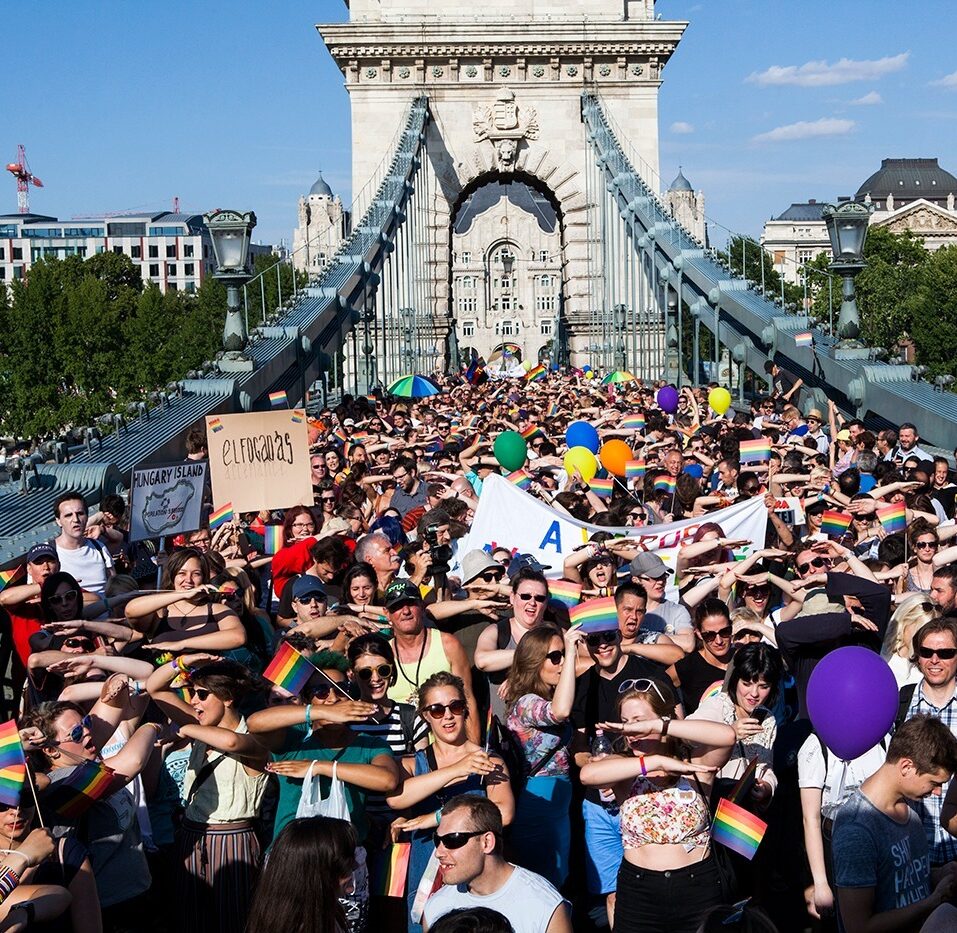
In an attack on freedom of assembly, Hungary’s Parliament has passed a controversial law criminalising Pride marches and allowing the use of facial recognition technology to target participants.
In a deeply troubling development, Hungary’s Parliament has passed a law banning Pride marches across the country. The law was fast-tracked through Parliament in just one day, with no consultation or debate, marking a significant erosion of freedom of assembly and human rights in Hungary.
The newly passed legislation expands Hungary’s already controversial “child protection” law, which prohibits the “depiction or promotion” of homosexuality to minors. This law reinforces harmful and outdated stereotypes about LGBTI individuals and their rights.It takes this one step further by criminalising Pride events, both for organisers and participants, while also granting authorities the power to use facial recognition technology to track, identify, and fine attendees. This measure has been condemned as a significant infringement on privacy and personal freedoms.
According to ILGA-Europe’s Executive Director, Chaber: “This new law is more than just a ban on a single event. It represents an assault on the fundamental freedoms of expression, assembly, and protest, and an attempt to silence the LGBTI community in Hungary. It is an effort to erase LGBTI people from public life and restrict their ability to peacefully protest. More restrictions on the rights of other people will follow.”
The government’s actions have sparked widespread protests. Yesterday, thousands gathered outside Parliament, chanting anti-government slogans. The organisers of Budapest Pride also remain defiant. This year marks the 30th anniversary of the Budapest Pride march, and they are committed to marching on June 28, 2025.
“The international community must rally behind the people of Hungary, demanding the protection of their right to peacefully assemble and protest,” Chaber added. “As Pride marches continue to grow and oppose authoritarianism worldwide, the fight for LGBTI rights becomes even more vital in the broader struggle for democracy and human dignity.”
Joint statement welcoming EU’s top court judgment to correct a trans man’s gender identity data in national registry
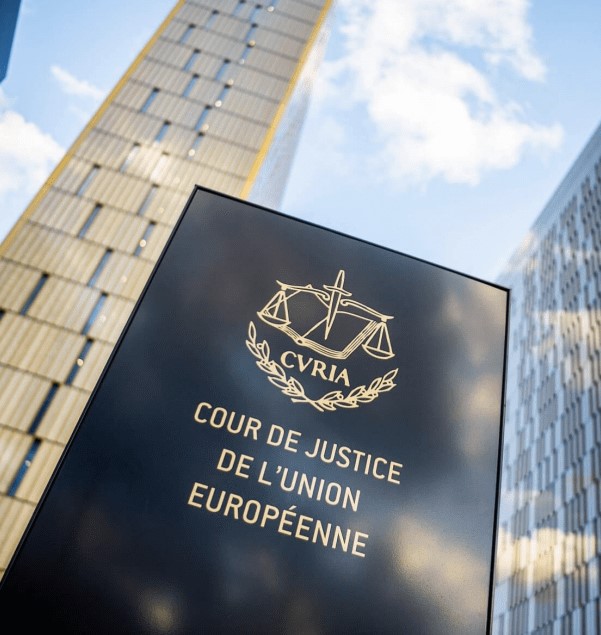
Today, the European Court of Justice (CJEU) issued a judgment in the case of Deldits (C-247/23), stating that national authorities responsible for keeping public registers (such as asylum registers) should correct data on gender identity when it is inaccurately recorded. This decision carries significant implications for advancing human rights protections in the EU, at a time when trans people and human rights in general are under massive attack.
Background
A trans refugee in Hungary seeks legal gender recognition
This case concerns an applicant who was granted refugee status in Hungary based on a well-founded fear of persecution in his country of origin because of his gender identity. The applicant requested the correction of his gender marker and name on the national asylum registry (as it reflected his name and sex at birth) under Article 16 of the EU’s General Data Protection Regulation (GDPR) on the basis that the data was inaccurate.
A legal paradox: Granted asylum but denied recognition
Despite the Hungarian authorities granting the applicant refugee status on this ground, he found himself in a paradox: his gender marker was registered incorrectly, and he could not correct it as there is no legal framework regulating the conditions for legal gender recognition (LGR) in the country.
Hungary’s ban on legal gender recognition
This case is a pivotal moment in the ongoing battle for the rights of trans people in Hungary, which has banned LGR for citizens in 2020, whilst refugees never had access to LGR. Moreover, Hungarian authorities requested proof of surgery as a precondition to change the applicant’s gender marker – a practice that the European Court of Human Rights has declared to be in violation of the right to respect for private and family life as protected by Article 8 of the Convention since 2017.
GDPR and human rights
The case raised several important questions for the CJEU: whether the GDPR mandates the correction of gender markers in national registries upon request. If so, does this request require evidence? If so, does it need to include proof of surgical intervention?
CJEU ruling strengthens trans rights and data accuracy rules
Today’s CJEU ruling addresses these questions, and is very favourable. It confirms that the right to rectification under Article 16 GDPR, taken in conjunction with the principle of data accuracy under Article 5(1)(d) GDPR, require authorities, without undue delay, to correct personal data concerning gender identity which is held in public registers when such data is inaccurate.
Importantly, the Court stated that if the purpose of collecting personal data is to identify the individual, the data should refer to the person’s lived gender identity, and not the identity assigned to them at birth. In that respect, the Court underlined that a Member State cannot invoke the absence of a domestic procedure for LGR to limit the exercise of the right to rectification under GDPR.
Secondly, the Court clarified that a person may need to provide reasonable proof to correct inaccurate data, but Member States cannot require proof of ‘gender reassignment surgery’ “under any circumstances”. The Court stated that such a requirement goes against the right to personal integrity (Article 3) and the right to privacy (Article 7) of the Charter of Fundamental Rights.
The Hungarian authorities must now allow for a change of gender marker in the Asylum Registry and all other national registries. However, instead of patchwork procedures by each data controlling entity in the country, the Hungarian government needs to urgently create legal certainty and set up a legal framework for quick, transparent and accessible procedure for LGR, where individuals can adapt their documents to match with their gender identity. The European Court of Human Rights already found that Hungary violates the European Convention on Human Rights for failing to allow such procedure (R.K. v. Hungary, 2023) including for trans refugees (Rana v Hungary, 2020).
The CJEU ruling is also binding upon national authorities keeping a public register across all EU Member States.
Reactions
TGEU Expert Advisor, Richard Köhler, comments: “Trans people deserve accurate personal data—full stop. Today’s Court ruling sends a clear message: while Member States control legal gender recognition processes, they must respect EU law. Evidence can be requested, but surgical proof? Absolutely forbidden.
This isn’t just about refugees—it’s also about asylum seekers and citizens. Where public records are kept to identify people, Member States need to recognise that a person’s real identity is what matters, not labels given at birth. The Court couldn’t be clearer: surgery requirements and forced sterilisation violate EU data protection law. Now, Member States must take action. No more delays. No more excuses. The message is simple: recognise people’s identities without invasive demands. The EU Commission must support Member States with implementation and take decisive action against those who continue to deny trans people their fundamental rights.“
ILGA-Europe Advocacy Director, Katrin Hugendubel, said: “This judgment is a significant step forward for the rights of trans people, including refugees, in the EU – especially in Member States without any legal framework for LGR. At a time when the rights of trans and LGBTI people in general are under constant threat, we call on Member States to implement this ruling by ensuring that their frameworks for collecting and storing personal data are GDPR and fundamental rights compliant. We also call on the EU Commission to actively monitor the implementation of this judgment and to encourage Member States to bring their frameworks for LGR in line with international human rights and EU law standards.”
According to Gábor Győző, the attorney representing the applicant in the proceedings on behalf of Háttér Society and the Hungarian Helsinki Committee, “it is very important and welcomed that the Court not only addressed the specifics of the case, but also assessed the Hungarian legal framework and the protection of the rights of trans people in a broader context. Moreover, this decision also serves as a guideline for all other Member States on this issue.”
“Trans people have been subject to constant governmental harassment in recent years. The judgment is a ray of hope that they cannot be deprived of their rights and denied their existence,” added Eszter Polgári, Director of the Legal Program of Háttér Society.
Joint calls to action
We call on EU governments to adhere to this CJEU ruling and proactively check their national procedures for a GDPR and European human rights compliant framework that allows individuals to quickly, transparently and in an accessible way update gendered data that is held on them. As EU data protection rules apply to anyone in the EU, they also need to ensure data of asylum seekers alongside refugees can be easily updated to reflect a person’s gender identity.
We call on the EU Commission to monitor the implementation of the Deldits case into national case law and adherence of the national authorities to the final decision. Failure in compliance needs to lead to infringement procedures. National Data Protection Authorities (DPAs) should equally monitor implementation and issue fines for non-compliant data controllers.
For a uniform understanding and application across the EU on both the Deldits and Mousse CJEU case law, we call on the Commission to provide practical guidance and the possibility to exchange for Member States and data controllers on implementation.
As EU data protection rules also apply to private actors, any organisation collecting, storing, or processing personal data on names and gender markers needs to check their processes for allowing correction of the data that they hold.
We urge EU institutions and Member States to ensure trans people have access to quick, transparent and accessible paths to LGR.
Congratulations to everyone involved for this incredible victory. Your efforts and dedication will make a huge impact on trans lives across the EU.
ILGA-Europe and TGEU provided support in the CJEU procedure to Háttér Society, which represented the applicant together with the Hungarian Helsinki Committee in this case.
Context
Today’s judgement comes on the heels of a groundbreaking data protection case strengthening the rights of non-binary people, Mousse (C-394/23). In this judgment, the CJEU found that the collection of gendered civil tiles (Mr/Mrs) when purchasing train tickets by a railway company is not necessary for providing transportation services and hence not compliant with the GDPR principle of data minimisation.
EU data privacy rules
The GDPR is Europe’s powerful privacy law that protects people’s personal data by giving them control over how private and public organisations collect, use and store their information. It applies to all organisations handling EU residents’ data anywhere in the world, and goes far beyond cookie settings—it ensures organisations get proper consent, minimise data collection, secure information properly, and allow people to access, correct, or delete their own data.
Today’s judgment particularly addresses national authorities and public registers. Therefore, it goes beyond asylum registers and may well have implications for national civil registries and how such personal data can be corrected.
The Court reaffirmed that regulation of legal gender recognition continues to be within the remit of Member States, but that they must respect EU data protection and fundamental rights when doing so.
Read Háttér Society’s press release here.
Statement: Orbán’s threat to ban LGBTI Pride marks a dangerous step toward silencing dissent
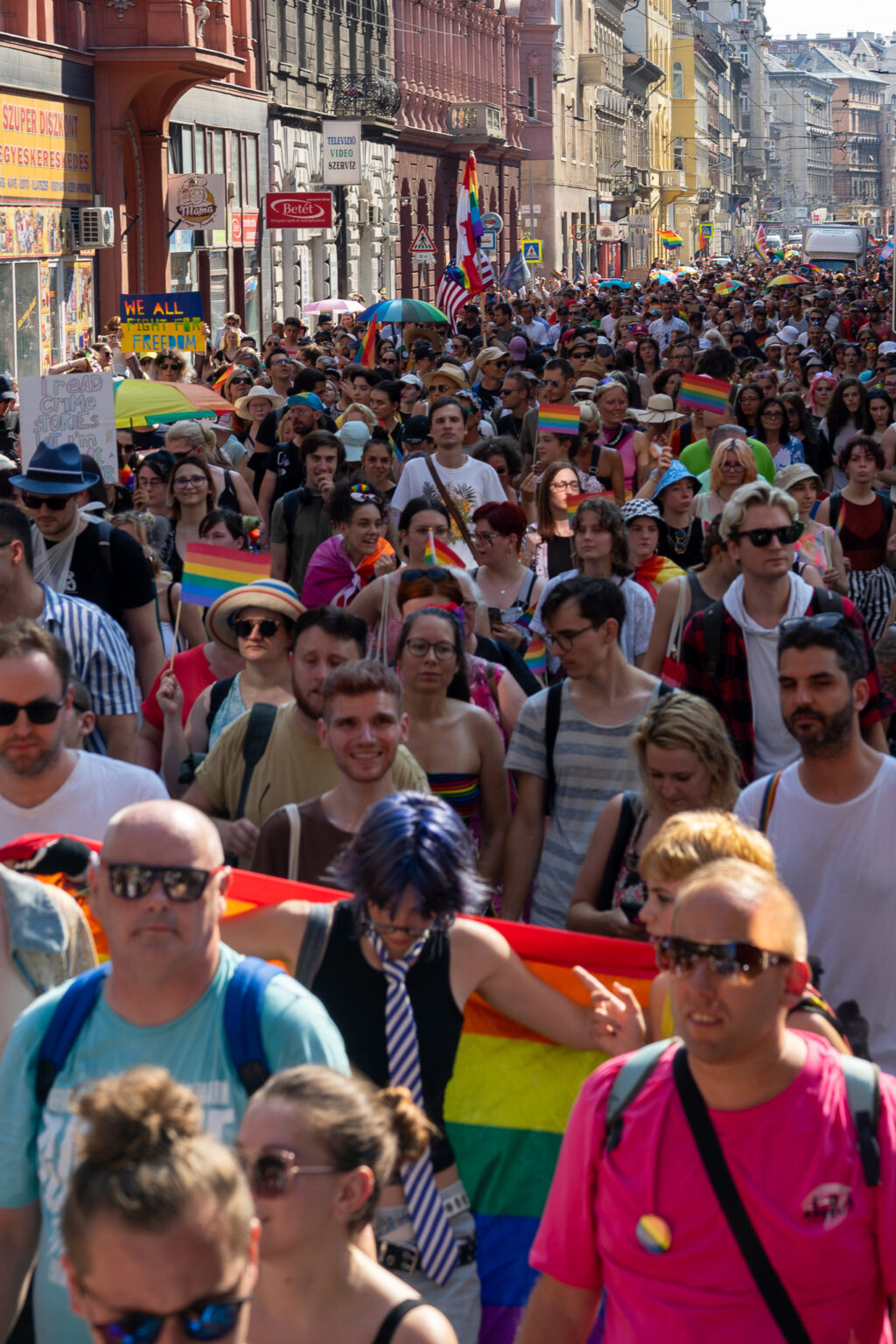
Hungarian Prime Minister Viktor Orbán’s threat to ban the 2025 Budapest Pride march has sparked outrage, with concerns over restrictions linked to the country’s anti-LGBTI law. ILGA-Europe stand in solidarity with the organisers of Budapest Pride, and assert the Hungarian people’s right to peaceful protest.
On 22 February, the Hungarian Prime Minister, Viktor Orbán, delivered a speech in which he threatened to ban Budapest Pride. During his State of the Nation address, Orbán said: “I advise the Pride organisers that they should not bother preparing for this year’s march. It would be a waste of time and money”.
While no legislation has yet been tabled to outright ban the 2025 Pride march, the government has referred to restrictions on its location, justifying this on the basis of the Hungarian anti-LGBTI law adopted in 2021, which bans promotion or portrayal of so-called “divergence from self-identity corresponding to sex at birth, sex change or homosexuality” to minors. This effectively bans depictions or “promotion” of LGBTI identities in the public space or anywhere where minors could be present or see LGBTI related content.
The European Commission has taken Hungary to court over this aforementioned law, and any restrictions or bans on Pride would also contravene laws related to freedom of assembly and freedom of expression, protected in both international law1 and Hungary’s own Constitution2.
Last year, 35,000 people marched, making Budapest Pride the largest recurring civil rights demonstration in the country. Activists anticipate that this year’s march will be Hungary’s largest Pride ever. Many Hungarians who have never attended any Pride marches are publicly declaring their intention to join because the government is threatening a ban.
Banning Pride in Budapest would eliminate a crucial platform for Hungarians to demand that their government listen to its people and uphold democratic values. It would mark a dangerous step toward restricting the right to protest and silencing dissent.
We affirm the value and importance of Pride as a peaceful gathering to assert the equal human rights of LGBTI people, in the context of demanding equal human rights for all. We decry any attempt to stamp out Pride as an attack on everyone’s right to freedom of assembly. We stand in solidarity with Budapest Pride, who will march on June 28, and are determined to fight all obstacles laid in front of them. We urge the authorities in Hungary and every democratic state to respect and protect the right to peaceful assembly. A society that upholds human rights for all is a stronger, more just society for everyone.
Retreat from development aid continues as more governments announce funding cuts
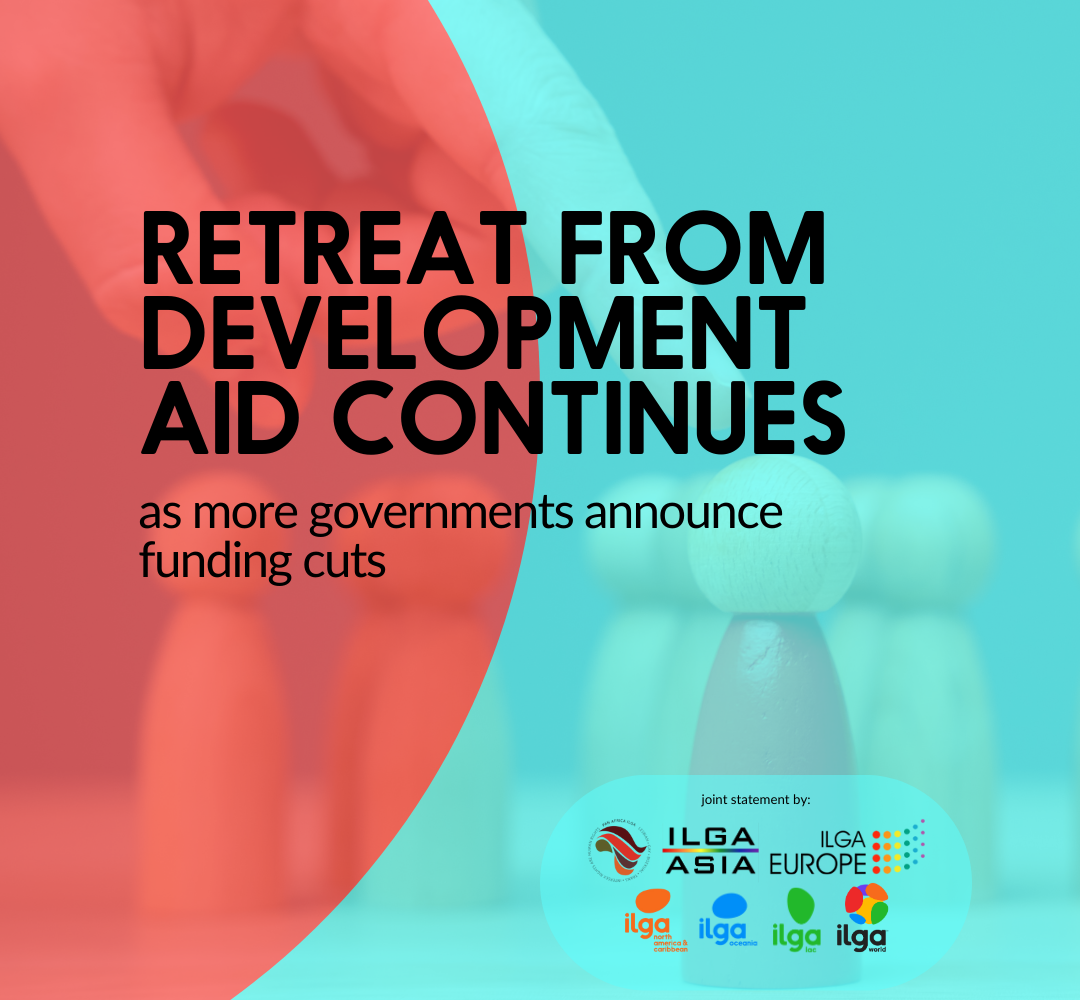
Joint statement by ILGA World, Pan Africa ILGA, ILGA Asia, ILGA-Europe, ILGA-NAC, ILGA Oceania, ILGALAC
Spanish version is available below.
Geneva, 11 March 2025 – ILGA expressed concern today as more governments follow the pattern of drastically cutting foreign aid. So far in 2025, in addition to the United States, the governments of the United Kingdom and the Netherlands announced severe decreases in their ODA (Official Development Assistance), using strong rhetoric while dropping their commitments towards marginalised communities. Switzerland, Belgium, and France have also announced plans or initiatives to follow suit. The impact on communities at risk and on civil society will be devastating.
“Governments are making the conscious choice to stop, or gut, investing in foreign aid,” said ILGA World executive director Julia Ehrt. “These cuts have very concrete consequences, for civil society at large and the provision of health services — including reproductive health — in ODA recipient countries.”
“Health and community centres will no longer be able to access resources and serve marginalised communities. Projects to advance their safety, well-being, and dignity will be shut down due to these government actions. Make no mistake: governments know that these choices will put thousands of people’s lives at risk – yet they’re withdrawing their long-standing support anyway without offering alternatives.”
Since January 2025, the human rights, aid, and development sectors have been facing unprecedented and multiple budget cuts and freezes – with a systematic defunding of work supporting LGBTI people, women and girls, and vulnerable people living in conflict zones and humanitarian crises. These are occuring at a time of a rise of harmful political narratives that target civil society and political participation, and create more space for democratic backsliding and decline in rule of law.
Across ILGA’s six regions, the impact has and continues to be far reaching and devastating, particularly to those who rely on member organizations for support and services. We have seen the closure of offices and reduction in staff and programs. In countries and communities in the global South that already struggle with systemic violence and discrimination, the financial hit amplifies and strengthens the movement against justice, rights and freedom.
Now, the United Kingdom will decrease spending on international development by 40% to only 0.3% of their GDP, to increase their defense expenses by a mere 10%. The decision has been decried by UK International Development Minister Anneliese Dodds herself, who resigned over the prime minister’s cuts to the aid budget. Meanwhile, the Netherlands will cut EUR 2.4 billion from 2027, claiming that “Dutch interests will take precedence”. Despite the majority of the Dutch Parliament has repeatedly expressed support for aid improving the health and equality of women, girls and LGBTI people, the Ministry’s policy letter on international development does not explicitly mention LGBTI communities even once.
Similarly, the Swiss government confirm it will slash its foreign aid budget by CHF 110 million this year; Belgium will cut its foreign aid budget by 25% over five years under a new coalition deal struck at the end of last month; and France is planning to reduce public development aid by up to 40 percent as part of its EUR 32 billion budget cuts for 2025.
While civil society organisations have been dealing with restructuring of development aid since 2020, with priorities rapidly shifting in the aftermath of the Covid-19 pandemic and the war in Ukraine, the public motivation given to justify these new cuts is unprecedented.
“We are particularly alarmed by the rhetoric used in these announcements,” Ehrt continues. “If States are so concerned with their national interests, they should know that inequality is the primary cause of social unrest. And yet, they choose to make the world more unstable and hence less secure by de-prioritising human rights and social justice work.”
“Civil society has been grappling with the effects of shrinking space globally. Countries that have traditionally supported civic organising are now withdrawing support. This will accelerate the decline of democracies worldwide. Every day, we hear news of organisations barely staying afloat and people counting on their support thrown into despair. The world is becoming more unstable by the day: this is not the time for States to turn their backs on those in need. We call on more donors to step in, and for States to listen to the needs of marginalised communities and provide them with a lifeline through sustainable funding.”
Notes to editors:
ILGA World is a worldwide federation of more than 2,000 organisations from over 170 countries and territories campaigning for the human rights of people with diverse sexual orientations, gender identities and expressions, and sex characteristics. https://ilga.org
In the text of this statement, “ILGA” refers to ILGA World, ILGA Oceania, ILGA Asia, Pan Africa ILGA, ILGA-Europe, ILGA North America & Caribbean; ILGA Latin America and the Caribbean.
Continúa el retroceso de la ayuda al desarrollo a medida que más gobiernos anuncian recortes de financiación
Declaración conjunta de ILGA Mundo, Pan Africa ILGA, ILGA Asia, ILGA-Europe, ILGA-NAC, ILGA Oceania, ILGALAC
Ginebra, 11 de marzo de 2025 – La ILGA ha expresado hoy su preocupación ante el hecho de que cada vez más gobiernos sigan el patrón de recortar drásticamente la ayuda exterior. En lo que va de 2025, además de Estados Unidos, los gobiernos del Reino Unido y de los Países Bajos han anunciado fuertes recortes en su AOD (Ayuda Oficial al Desarrollo), utilizando una retórica contundente mientras abandonan sus compromisos con las comunidades marginadas. Suiza, Bélgica y Francia también han anunciado planes o iniciativas para seguir su ejemplo. El impacto en las comunidades en riesgo y en la sociedad civil será devastador.
«Los gobiernos están tomando la decisión consciente de detener o reducir las inversiones en ayuda exterior», dijo la directora ejecutiva de ILGA Mundo, Julia Ehrt. «Estos recortes tienen consecuencias muy concretas para la sociedad civil en general y la prestación de servicios de salud, incluida la salud reproductiva, en los países receptores de AOD».
«Los centros de salud y comunitarios ya no podrán acceder a los recursos y atender a las comunidades marginadas. Los proyectos para mejorar su seguridad, bienestar y dignidad se cancelarán debido a estas acciones gubernamentales. No se equivoquen: los gobiernos saben que estas decisiones pondrán en peligro la vida de miles de personas, pero, aun así, están retirando su apoyo de larga data sin ofrecer alternativas».
Desde enero de 2025, los sectores de derechos humanos, ayuda y desarrollo se han enfrentado a múltiples recortes y congelaciones presupuestarias sin precedentes, con una retirada sistemática de fondos para el trabajo de apoyo a las personas LGBTI, las mujeres y las niñas, y las personas vulnerables que viven en zonas de conflicto y crisis humanitarias. Esto ocurre en un momento de auge de narrativas políticas dañinas en contra de la sociedad civil y la participación política, y crean más espacio para el retroceso democrático y el declive del Estado de derecho.
En las seis regiones de la ILGA, el impacto ha sido y sigue siendo de gran alcance y devastador, especialmente para aquellas personas que dependen de las organizaciones miembros para recibir apoyo y servicios. Hemos visto el cierre de oficinas y la reducción de personal y programas. En los países y comunidades del Sur global que ya luchan contra la violencia y la discriminación sistémicas, el golpe financiero amplifica y fortalece el movimiento contra la justicia, los derechos y la libertad.
Ahora, el Reino Unido reducirá el gasto en desarrollo internacional en un 40 % hasta solo el 0,3 % de su PIB, para aumentar sus gastos de defensa en apenas un 10 %. La propia ministra de Desarrollo Internacional del Reino Unido, Anneliese Dodds, que dimitió por los recortes del primer ministro en el presupuesto de ayuda, ha criticado la decisión. Mientras tanto, los Países Bajos recortarán 2 400 millones de euros a partir de 2027, alegando que «los intereses neerlandeses tendrán prioridad». A pesar de que la mayoría del Parlamento neerlandés ha expresado en repetidas ocasiones su apoyo a la ayuda para mejorar la salud y la igualdad de las mujeres, las niñas y las personas LGBTI, la carta política del Ministerio sobre desarrollo internacional no menciona explícitamente a las comunidades LGBTI ni una sola vez.
De manera similar, el gobierno suizo confirmó que recortará su presupuesto de ayuda exterior en 110 millones de francos suizos este año; Bélgica recortará su presupuesto de ayuda exterior en un 25 % durante cinco años en virtud de un nuevo acuerdo de coalición alcanzado a finales del mes pasado; y Francia tiene previsto reducir la ayuda pública al desarrollo hasta en un 40 % como parte de sus recortes presupuestarios de 32 000 millones de euros para 2025.
Si bien las organizaciones de la sociedad civil han estado lidiando con la reestructuración de la ayuda al desarrollo desde 2020, con un rápido cambio de prioridades a raíz de la pandemia de la Covid-19 y la guerra en Ucrania, la motivación pública dada para justificar estos nuevos recortes no tiene precedentes.
«Estamos especialmente alarmados por la retórica utilizada en estos anuncios», continúa Ehrt. «Si los Estados están tan preocupados por sus intereses nacionales, deberían saber que la desigualdad es la principal causa de malestar social. Y, sin embargo, optan por hacer el mundo más inestable y, por tanto, menos seguro, al restar prioridad a los derechos humanos y a la labor de justicia social».
«La sociedad civil ha estado lidiando con los efectos de la reducción del espacio a nivel mundial. Los países que tradicionalmente han apoyado la organización cívica ahora están retirando su apoyo. Esto acelerará el declive de las democracias en todo el mundo. Todos los días, escuchamos noticias de organizaciones que apenas se mantienen a flote y de personas que cuentan con su apoyo y se sienten desesperadas. El mundo se vuelve más inestable cada día: este no es el momento para que los Estados le den la espalda a las personas que están necesitadas. Hacemos un llamamiento a más donantes para que intervengan, y a los Estados para que escuchen las necesidades de las comunidades marginadas y les proporcionen un salvavidas a través de una financiación sostenible».
Notas para les editores:
ILGA Mundo es una federación mundial de más de 2000 organizaciones de más de 170 países y territorios que hacen campaña por los derechos humanos de las personas con diversas orientaciones sexuales, identidades y expresiones de género y características sexuales. https://ilga.org
En el texto de esta declaración, «ILGA» se refiere a ILGA Mundo, ILGA Oceanía, ILGA Asia, Pan Africa ILGA, ILGA-Europe, ILGA Norteamérica y el Caribe (ILGA-NAC; ILGA América Latina y el Caribe (ILGALAC).
European court rules teacher’s dismissal over gay blog violated free speech

The European Court of Human Rights rendered a judgement in a case where the Polish authorities fired a school teacher for writing on a blog for adult gay men featuring some sexually explicit content.
In February, in the case of P. v. Poland, the European Court of Human Rights (ECtHR) ruled that Poland violated Article 10 of the European Convention on Human Rights (freedom of expression). The case involved a secondary school teacher who was dismissed for writing an illustrated diary under a pseudonym on a public blog intended for adult gay men, which included some sexually explicit content.
The authorities considered that the applicant’s blog was an affront to the domestic social mores prevailing in Poland because it talked in explicit terms about sexuality. The applicant argued that the authorities had wrongly perceived his blogging activity as attesting to his lack of morals and posing a threat to the ethical education of his students, and that the sanction imposed on him was disproportionate in the circumstances of the case.
ILGA-Europe, together with KPH (Campaign Against Homophobia) and PSAL (the Polish Society of Anti-Discrimination Law) filed a third-party intervention in the case. The intervention informed the European Court about the situation of LGBTI people in Poland and highlighted the States’ obligations under international law and the European Convention on Human Rights (ECHR) framework. It emphasised the States’ obligation to provide effective measures to protect LGBTI persons’ rights to private life and freedom of expression, and to unmask possible discriminatory motives in case of interference with these rights.
While the European Court considered that there was no proof that the applicant’s sexual orientation had been the real reason for his dismissal, it still took into account the fact that the blog depicted same-sex relations when ruling on the breach of his freedom of expression. The Court relied on our intervention, which reminded that the Council of Europe’s Commissioner for Human Rights and the EU Fundamental Rights Agency reported that the prevailing social attitude towards LGBTI persons in Poland was negative. Owing to this, the Court considered important to refer to its previous ruling in the Macatė v Lithuania case, which found a violation of Article 10 as a result of restrictions on the distribution of a book that depicted a same-sex marriage.
The Court considered that the applicant’s dismissal was disproportionate, especially as he did not have any previous record of disciplinary sanctions. It concluded that the Polish authorities did not provide relevant and sufficient reasons for dismissing the applicant from his position as his blogging activity did not threaten the protection of morals of minors in a manner justifying the sanction imposed on him.
According to Annamaria Linczowska, Advocacy and Litigation Officer at Campaign Against Homophobia: “The case itself was a vivid example of discrimination against LGBT+ persons in Poland that time. Using a very serious mechanism – the teacher’s dismissal – the school and later, the commissions, interfered with the teachers’ freedom of speech, his right to be vocal in public about same-sex relationships. The case illustrates the obstacles and discrimination LGBT+ people face in the workplace and in education in Poland. Even though we share the ECtHR’s view regarding the country’s positive obligation to introduce legal tools to ensure respect of private life and freedom of expression, KPH believes that in this case it should have considered also the violation of articles 8 and 14 of the Convention by asserting the fact that applicant’s sexual orientation was a real reason for his dismissal”.
See KPH’s full statement here.
According to Marie-Hélène Ludwig, Senior Strategic Litigation Officer at ILGA-Europe: “We are glad that the Court took into account our joint third-party intervention describing the negative social attitude towards LGBTI persons prevailing in Poland to rule that the domestic authorities breached the applicant’s freedom of expression by dismissing him from his position.”
ILGA-Europe Statement: Turkey is detaining LGBTI+ activists and journalists, and targeting basic rights
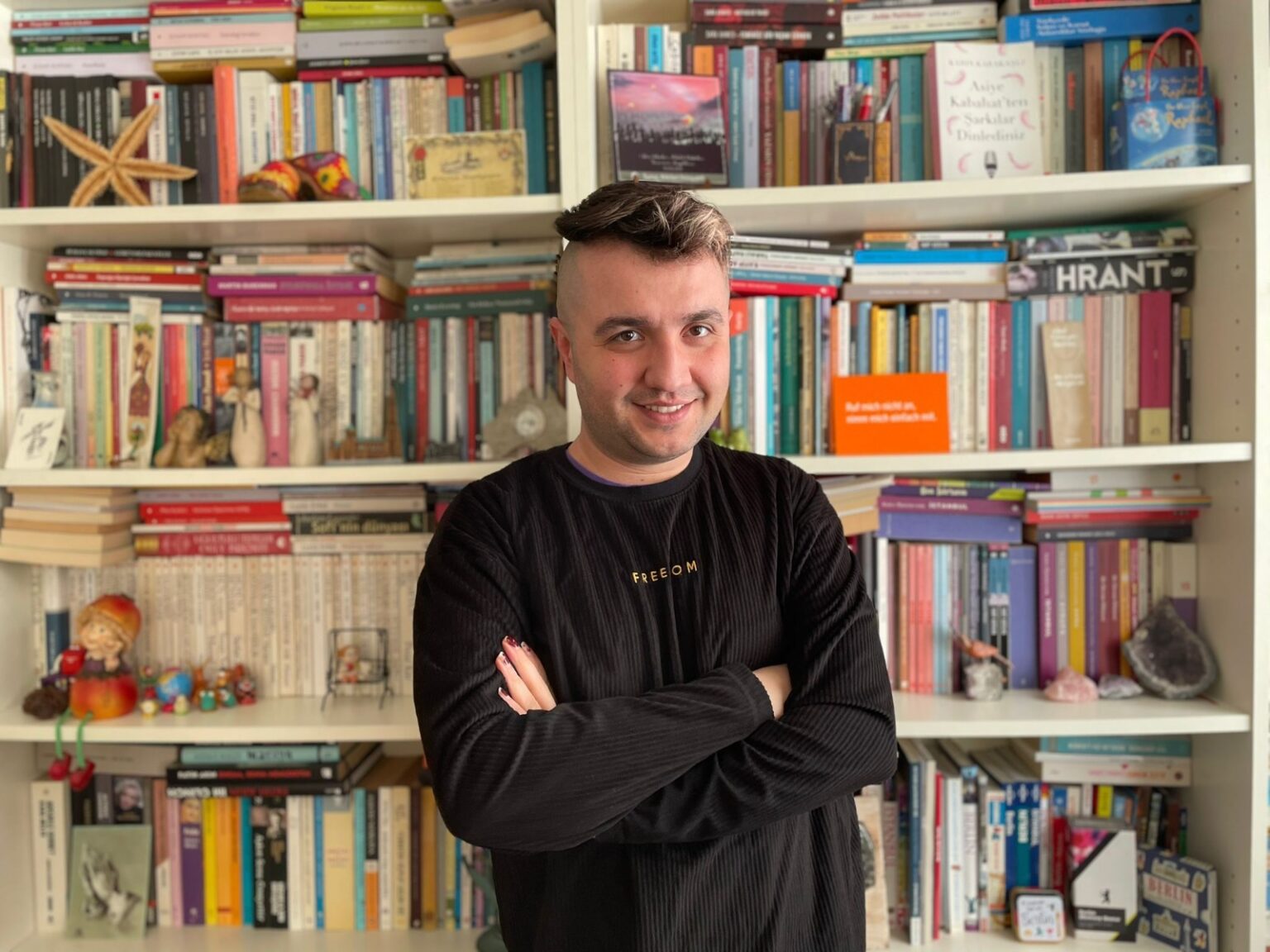
The Turkish government has intensified its repression of LGBTI+ human rights defenders, detaining activists and introducing draconian laws that further restrict legal gender recognition, trans healthcare, and free expression. The proposed measures mirror anti-LGBTI+ laws in Russia and Hungary, prompting urgent calls for action.
The last two weeks have seen an increasingly severe crackdown on LGBTI+ human rights defenders and activists in Turkey. This comes during a time when the Turkish government is eroding civic rights and freedoms, including detaining journalists, opposition politicians, and targeting civil society organisations (CSOs) through smear campaigns and further restrictive legislation.
On 18 February, journalist and Editor-in-Chief of KaosGL.org, a news portal dedicated to LGBTI+ issues, Yıldız Tar, was arrested and accused of “membership in a terrorist organisation”. They were arrested alongside a number of journalists, activists (including Erkin – a trans activist), artists and opposition MPs, amounting to 52 arrests that day.
The following week, on 27 February, draft amendments of the Turkish government were leaked to the press which aim to amend the Criminal and Civil Codes to further restrict access to legal gender recognition and trans-specific healthcare, ad criminal sanctions to these as well as criminal sanctions for “any person who publicly encourages, praises or promotes attitudes and behaviors contrary to innate biological sex and public morality” and “persons of the same sex [who] perform an engagement or marriage ceremony”.
The further restrictions to accessing legal gender recognition are:
- Increasing the age of eligibility from 18 to 21.
- Reintroducing mandatory sterilisation (a provision previously annulled by the Constitutional Court and found to violate the European Convention of Human Rights by the European Court of Human Rights (ECtHR)).
- Introducing a lengthier process for approval, requiring an official medical board report to be issued by a “full-fledged training and research hospital designated by the Ministry of Health as a result of four evaluations to be made at least three months apart” (previously it was to be obtained from a training and research hospital), with no maximum duration set, potentially allowing indefinite delays.
Additionally, a new requirement for accessing trans-specific healthcare is introduced, stipulating that it can only be carried out after permission is obtained from one of the above-described hospitals designated by the Ministry of Health.
The criminal sanctions being introduced include sentences of:
- 3-7 years imprisonment and a judicial fine from 1,000-10,000 days for anyone who commits gender reassignment surgery contrary to the new provisions, with the recipient of the surgery facing 1-3 years imprisonment.
- 1-3 years imprisonment for “Any person who publicly encourages, praises or promotes attitudes and behaviors contrary to innate biological sex and public morality”.
- 1.5-4 years imprisonment for “persons of the same sex [who] perform an engagement or marriage ceremony”.
These new legislative restrictions will further restrict the already inaccessible process of legal gender recognition and access to trans-specific healthcare in Turkey (see our previous statement regarding this), making legal and medical transition nearly impossible.
The requirement for mandatory sterilisation and medical certification in order to access legal gender recognition has already been deemed abusive by international human rights bodies. ECtHR case law is clear that such requirements are in violation of the right to privacy and the right to bodily integrity. The Parliamentary Assembly of the Council of Europe (PACE) has called on its member states to “develop quick, transparent and accessible procedures, based on self-determination”. The UN Independent Expert on Protection Against Violence and Discrimination Based on Sexual Orientation and Gender Identity has also recommended that legal gender recognition should be based on self-determination, be a simple administrative process, and not require applicants to fulfil abusive requirements such as surgical interventions or requiring medical certification.
A clear discriminatory attack
The new proposal for criminal sanctions for anyone “who publicly encourages, praises or promotes attitudes and behaviors contrary to innate biological sex and public morality” will impact ordinary people wishing to dress or be called in a way that is different from their biological sex assigned at birth, but also it will also target any debate, awareness raising, or portrayal of topics related to challenging gender binarism, which will impact LGBTI+ people, LGBTI+ CSOs, journalists, and other organisations or people defending freedom of expression.
The criminalisation of symbolic engagement and marriage ceremonies represents a clear discriminatory attack against the LGBTI+ community, who simply wish to honour their partnerships and love in a country where there is no possibility for a legal recognition of same-sex relationships.
The proposals’ provisions are similar to the anti-”LGBTI propaganda” laws seen already in Russia, Hungary and Bulgaria. The European Court of Human Rights has already ruled the Russian law to violate freedom of expression and the prohibition of discrimination, and the EU has launched infringement proceedings against both Hungary and Bulgaria for their laws.
ILGA-Europe calls on the Ministry of Justice to indefinitely withdraw the draft amendments and the Turkish parliament to reject the proposed legislative amendments, which introduce further discrimination against the LGBTI+ community, run contrary to international fundamental rights standards and decisions of Turkey’s Constitutional Court, and which will make the lives of LGBTI+ people in Turkey even more arduous, without providing any additional benefits to the general public.
We call on the Turkish government to immediately release Yıldız Tar and stop crackdowns on legitimate civil society organisations, journalists and others forming part of democratic checks and balances.
The Turkish government should ensure that everyone is equal under the law, and introduce provisions granting equality in line with the jurisprudence of the European Court of Human Rights, including non-abusive and accessible access to legal gender recognition, trans-specific healthcare, legal recognition of partnerships and the right of all to freedom of expression and information.
How you can help
Bring attention to these developments via media and social media:
- Demand the immediate release of Yıldız Tar and Erkin
- Speak out against the crackdown on CSOs, journalists and human rights defenders
- Speak out against the proposed anti-LGBTI+ legislation
Read our press release here.
Statement: ILGA-Europe Condemns Escalating Repression of Civil Society in Kazakhstan
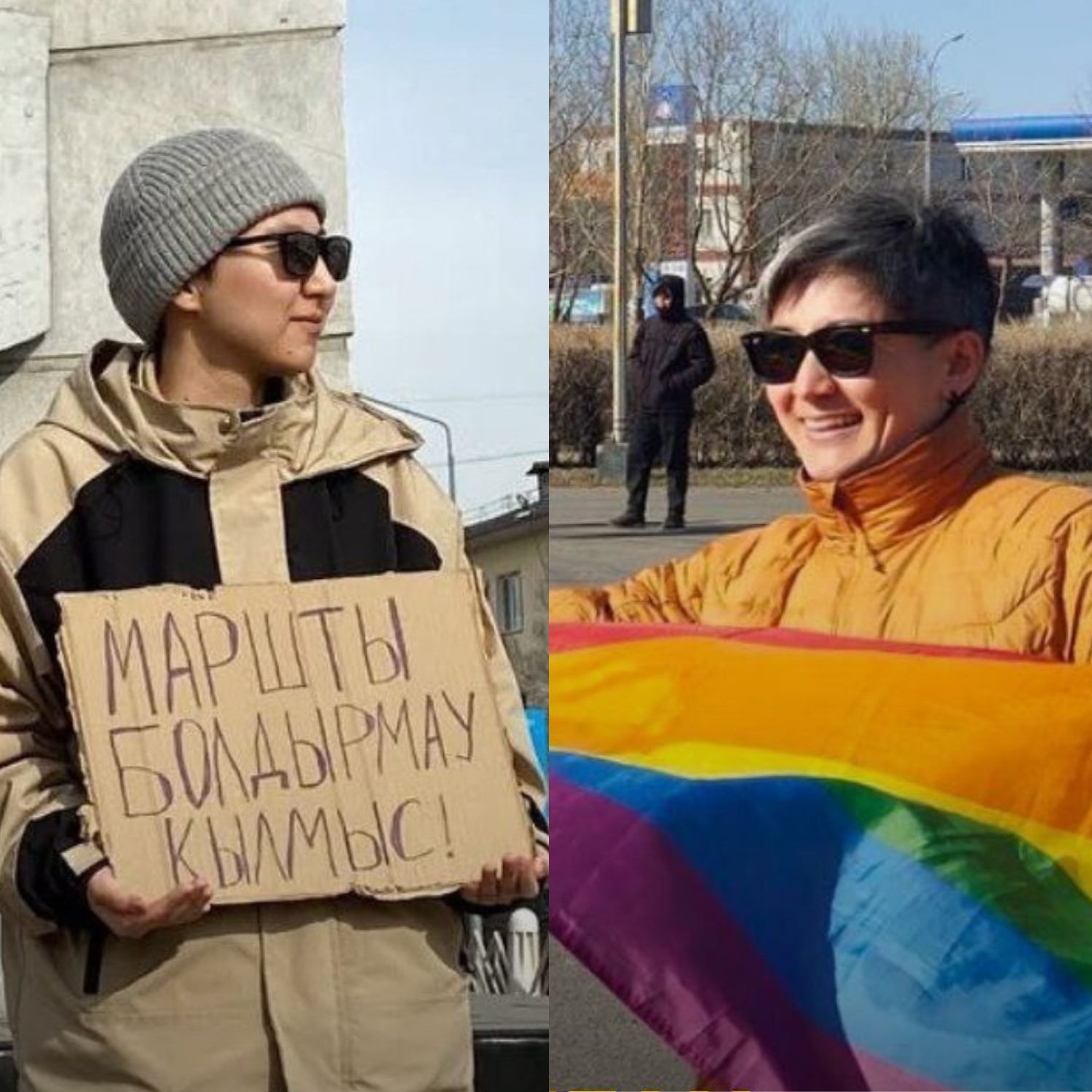
Call for Immediate Release of Detained Activists and an End to Arbitrary Persecution
ILGA-Europe strongly condemns the escalating repression and intimidation of civil society in Kazakhstan, exemplified by the recent detention of Zhanar Sekerbayeva and Aktorgyn Akkenzhebalasy – activists from Feminita, an informal LBTQ civil society initiative. Their arbitrary arrests and rushed sentencing to 10 days of administrative detention for a peaceful protest in 2024 mark yet another attack on fundamental freedoms.
These are not an isolated incident. It is part of a broader pattern of persecution, including arrests, fines, physical attacks, police raids, and legislative proposals designed to stifle legitimate civil society organisations advocating for equality—whether for women, LGBT individuals, or other marginalised groups. These particular arrests follow a recent unpunished violent attack on Feminita’s community event and another court decision to fine its activist, Gulzada Serzhan, for “managing an unregistered public association”. Activists anticipate further arrests ahead of Women’s Day demonstrations on 8 March.
We stand in full solidarity with LGBTI and wider civil society in Kazakhstan, who are facing an alarming crackdown on their rights and safety. Reminding the government of Kazakhstan of its international legal obligation to respect the peaceful expression of opinions, we call for the immediate release of detained activists, including Zhanar Sekerbayeva and Aktorgyn Akkenzhebalasy, an end to arbitrary prosecutions, and accountability for those enabling and perpetrating these repressions. We will be working with EU institutions to ensure that the respect for fundamental rights and freedoms, including freedom of assembly, is an integral part of relations with Kazakhstan.
Social entrepreneurship – What it is and how to start?
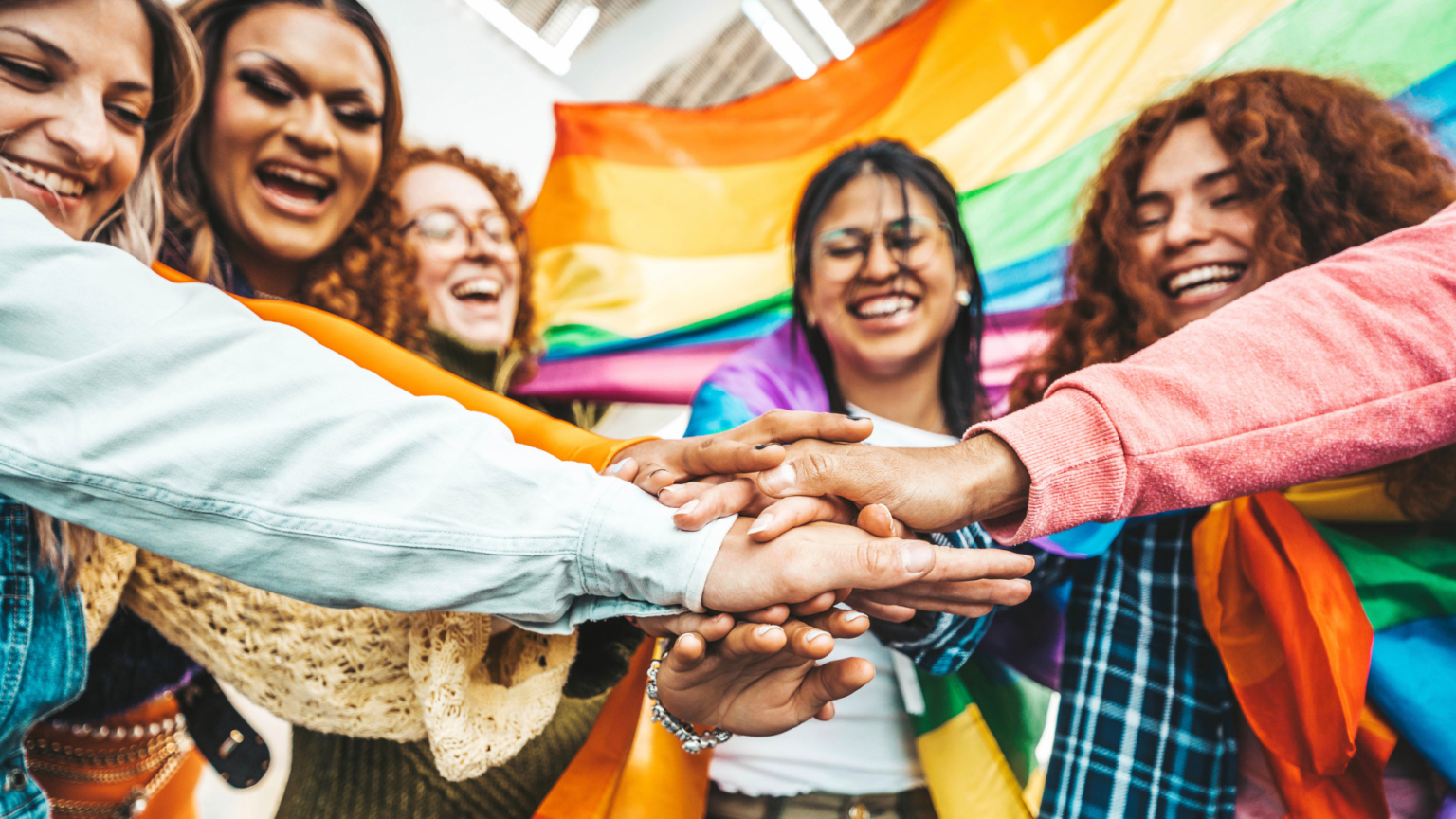
We’ll start with two inspiring speakers from two different organisations. Each will share their journey in launching and managing social enterprises, including the challenges they faced, key milestones they achieved, and the skills and resources that made it all possible. Afterward, you’ll have the chance to dive deeper in discussions with the speaker whose experience resonates most with you.
The session is designed for LGBTI groups and organisations in Europe and Central Asia considering starting up a social enterprise.
Our speakers will be:
- Amir Shaikezhanov is an LGBT activist from Kazakhstan who runs Amirovki, the biggest LGBT bar in Central Asia, and Safe Space Almaty, LGBT community center in Almaty, which also serves as a free-of-charge space for different activities organised by LGBTI activists and groups. Amir was also the project director of Amanbol, the first HIV self-testing program in Kazakhstan, which distributed over 11,000 HIV self-test kits for men who have sex with men, transgender and nonbinary persons.
- Ivan Dimov – Founder and Executive Director of Single Step Foundation in Bulgaria and CEO of The Steps, the largest LGBTI social enterprise in Europe. His prior professional career is in the field of finance: as an investment banker and VC in New York and Sydney, Australia. He served as Treasurer of the Executive Board of ILGA-Europe between 2020 – 2024.
Takeaways
- Diverse perspectives on social entreprise dynamics
- Practical tips and best practices for sustainable growth
- Real-world inspiration to explore launching your own social enterprise
The session will be in English, hosted by Seka Topal, Programs Officer at ILGA-Europe.
Please register here by March 10 the latest.
Equality betrayed: Commission unilaterally gives up on anti-discrimination law
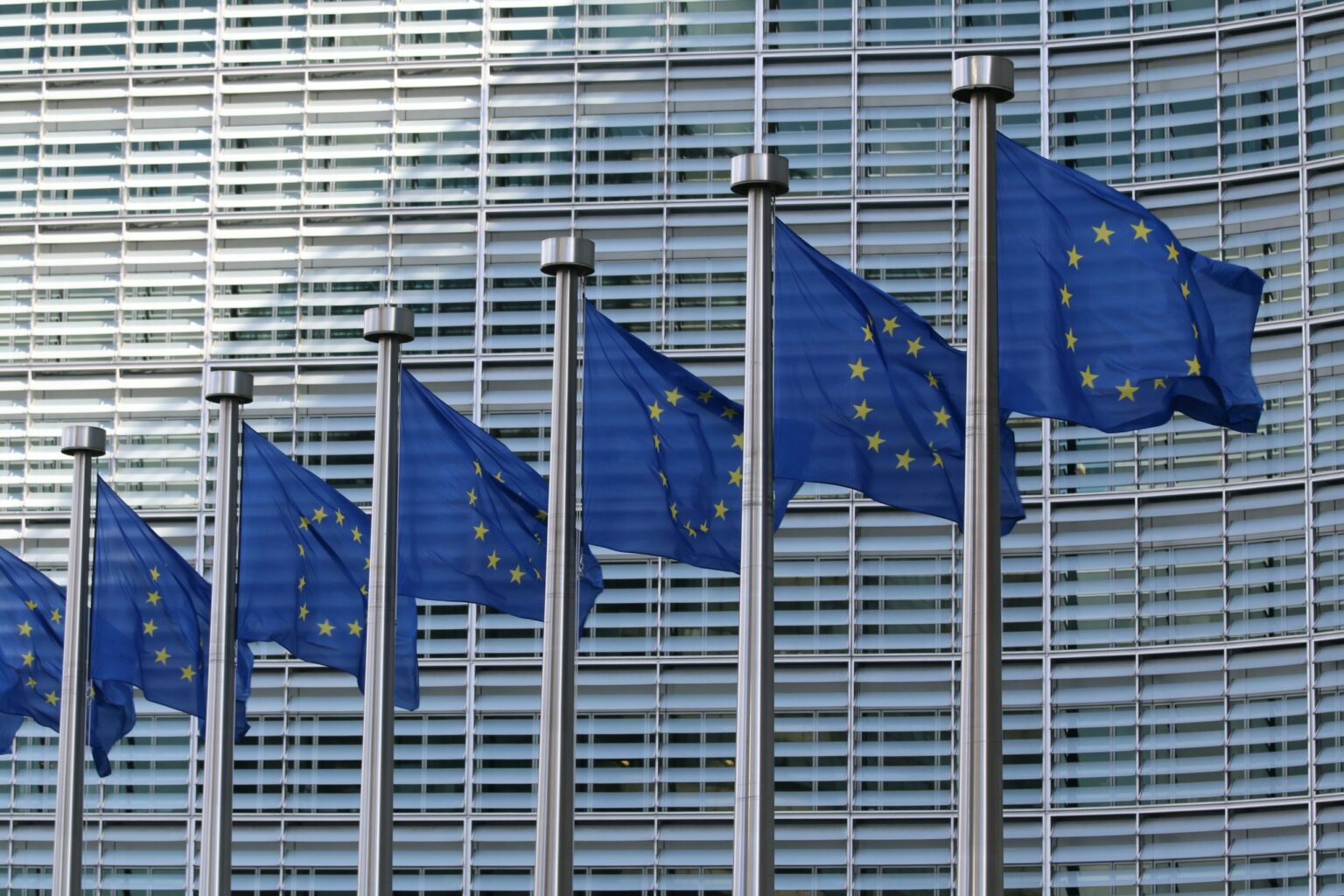
European Civil Society condemns the European Commission’s announcement to withdraw the proposed Directive on anti-discrimination as a betrayal of fundamental rights at a critical moment for democracy and equality in the EU.
On 12 February, the Commission publicly announced its intention to withdraw the proposal for the Equal Treatment Directive. This legislative measure aims to close legal gaps in EU anti-discrimination law. The EU Charter of Fundamental Rights and EU Treaties prohibit discrimination based on gender, racial or ethnic origin, religion or belief, disability, age, and sexual orientation. However, existing EU anti-discrimination legislation results in a hierarchy of protection where some forms of discrimination are more comprehensively addressed than others. The Equal Treatment Directive sought to harmonise these protections, ensuring a horizontal approach to equality.
This week’s decision severely undermines the EU’s commitment to building a Union of Equality at a time when marginalised communities require greater protection than ever. The withdrawal of the proposed Directive leaves a glaring gap in EU law, failing to protect young people, older persons, LGBTIQ+ persons, persons with disabilities or those facing discrimination based on religion or belief when accessing goods and services, housing, healthcare, social protection or education. It also does not sufficiently protect individuals who experience discrimination on the basis of race or ethnic origin and sex/gender in combination with these grounds.
The Commission’s intention to withdraw it, without consulting with civil society and without presenting any alternative plan on how to better ensure comprehensive protection against discrimination outside the labour market in the EU, sends the wrong political message.
Furthermore, this withdrawal goes against EU’s fundamental values enshrined in its treaties and disregards the support of the European Parliament, civil society, Equality Bodies and international organisations. It is also at odds with the European Commission’s repeated commitment to building a “Union of Equality” and undermines the Polish Presidency’s priorities.
Scrapping this directive without introducing a stronger and more comprehensive alternative at such a critical time when discrimination and rights violations are on the rise undermines the EU’s credibility as a global leader in human rights. It sends a clear message that those living in the EU will not be shielded from the worldwide backlash against equality, democracy and fundamental rights. It is not enough for the Commission to reverse its course. Member States must also step up and finally agree on an ambitious law that fights discrimination.
It is especially concerning that while the far-right is on the rise everywhere in Europe, the Commission chooses to sacrifice the human rights of citizens in what appears as a dangerous political gamble. In times of hatred and fear-mongering, we need more human rights protection, not less.
For this reason, we urge the European Commission to:
- Reconsider its intention to withdraw the Equal Treatment Directive;
- If the withdrawal proceeds, immediately propose a more robust and comprehensive legislative proposal that takes an intersectional approach, along with a clear timeline;
- Immediately engage in meaningful consultation with the European Parliament, civil society, Equality Bodies and EU citizens to determine the necessary action to achieve true equality;
- Make an unequivocal commitment to making the Union of Equality a reality for all of us.
We also call on:
- The Polish Presidency to hold an urgent and public Council meeting for the Commission to explain this decision
- The European Parliament to hold a public hearing with the European Commission on the decision and future steps to ensure protection against discrimination for all people living in the EU
Signatories:
Eurocentralasian Lesbian* Community (EL*C)
European Roma Grassroots Organisations Network (ERGO Network)
Organisation Intersex International Europe e.V. (OII Europe)
The International LGBTQI Youth & Student Organisation (IGLYO)
European Network against Racism (ENAR)
ILGA-Europe
European Disability Forum (EDF)
AGE Platform Europe (AGE)
Trans Europe and Central Asia (TGEU)
Joint statement welcoming judgement on Russia’s failure to protect the privacy of personal data
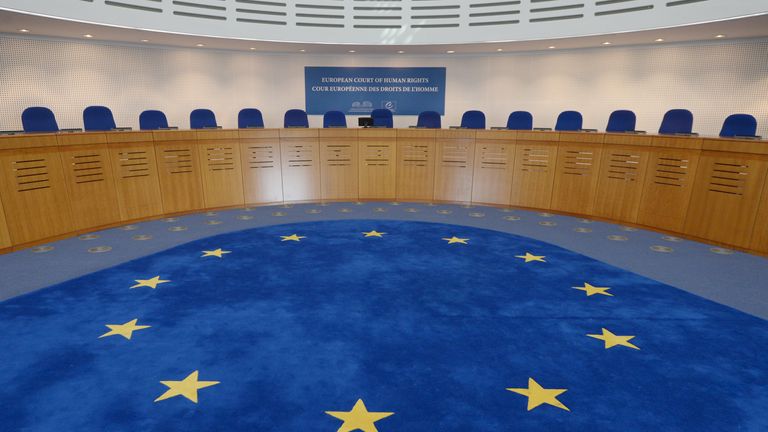
ILGA-Europe and the AIRE Centre welcome the judgement from the European Court of Human Rights in the case of Bazhenov and others v. Russia
Last week, in the case of Bazhenov and others v Russia, the European Court of Human Rights found a violation of Article 8 (right to private and family life) together with Article 14 (prohibition of discrimination) ECHR.
The applicants in this case are a lawyer who provided assistance in a number of high-profile criminal cases related to hate crimes against individuals, and a same-sex couple. The case concerns the disclosure of the applicants’ personal data, including their names, addresses and information about their sexual orientation, on openly homophobic public pages on social networks.
The applicants argued that this exposed them to elevated risks of harassment and made them fear for their lives and health, for the safety of their relatives and employees and for their professional activities. As such, they complained that the national authorities failed in their obligation to ensure effective respect for their private lives (Article 8 ECHR) and protect them from discrimination (Article 14 ECHR). They also complained under Article 13 ECHR that they had no effective remedy as the authorities failed to open a criminal case and conduct an effective investigation to respond adequately to those homophobic incidents.
Sharing of personal information should be a personal choice
ILGA-Europe together with the AIRE Centre submitted a third-party intervention in this case, stating that the sharing of personal information, including sexual orientation, should be an individual’s choice and that there should be safeguards to prevent the disclosure of such personal data. Moreover, national authorities have a positive obligation to conduct an effective investigation into an alleged interference with an individual’s private life, and a person’s sexual orientation should form part of the authorities’ considerations. Finally, we provided an analysis of the risks of discrimination, convictions by authorities and hate crimes that LGBTI individuals face through the non-consensual sharing of information and personal data.
The Court found that the authorities had indeed failed to offer adequate protection in respect of the applicants’ private lives and to protect them from discrimination. Importantly, the Court considered that “the domestic authorities were confronted with prima facie indications that the (…) disclosure of the applicant’s private data without their consent, including information about their sexual orientation, were driven by discriminatory attitudes against LGBTI community”. The Court found that this required an “effective investigation capable of elucidating the homophobic motive behind the breach of the applicants’ privacy and of identifying and, if appropriate, adequately punishing those responsible”.
A particularly vulnerable group, needing heightened protection
Furthermore, the Court recalled that “gender and sexual minorities require special protection from hateful and discriminatory speech because of the marginalisation and victimisation to which they have historically been, and continue to be, subjected.” It noted in this respect that the Russian LGBTI community can be regarded as a particularly vulnerable group, needing heightened protection from stigmatising statements.
Therefore, the Court ruled that domestic authorities had failed to discharge their positive obligation to respond adequately to the non-consensual dissemination of the applicants’ private data, including the information on their sexual orientation, by private individuals, and to investigate in an effective manner whether the dissemination of the data in question had been motivated by homophobic attitudes.
Welcoming the judgement, ILGA-Europe’s Senior Strategic Litigation Officer, Marie-Hélène Ludwig said: “This is a strong judgment in which the Court makes clear that States have a positive obligation to ensure respect for the right to private life, even when this concerns relationships between individuals. We welcome the Court’s observation that preventing and investigating the non-consensual dissemination of private data on one’s sexual orientation is particularly important in view of the vulnerability and risks faced by the LGBTI community in Russia at the moment.”
Last week, the Court also found violations of Article 8 (right to respect for private and family life) and Article 10 (freedom of expression) ECHR in the case of Klimova and Others v. Russia. The case concerned the applicants’ convictions for an administrative offence and/or the blocking of access to their websites or webpages on social networking sites, including one of the oldest and largest LGBTI websites in Russia, for “promoting homosexuality among minors”. The Court concluded that there was an interference with the applicants’ right to freedom of expression. One of the applicants also complained that the security services collected user data related to her personal social networking account and to the social networking community administered by her. The Court found that this amounted to an interference with the applicant’s right to respect for her private life.
Call for project proposals: Working with racialised LGBTI communities towards justice (2025-2026)
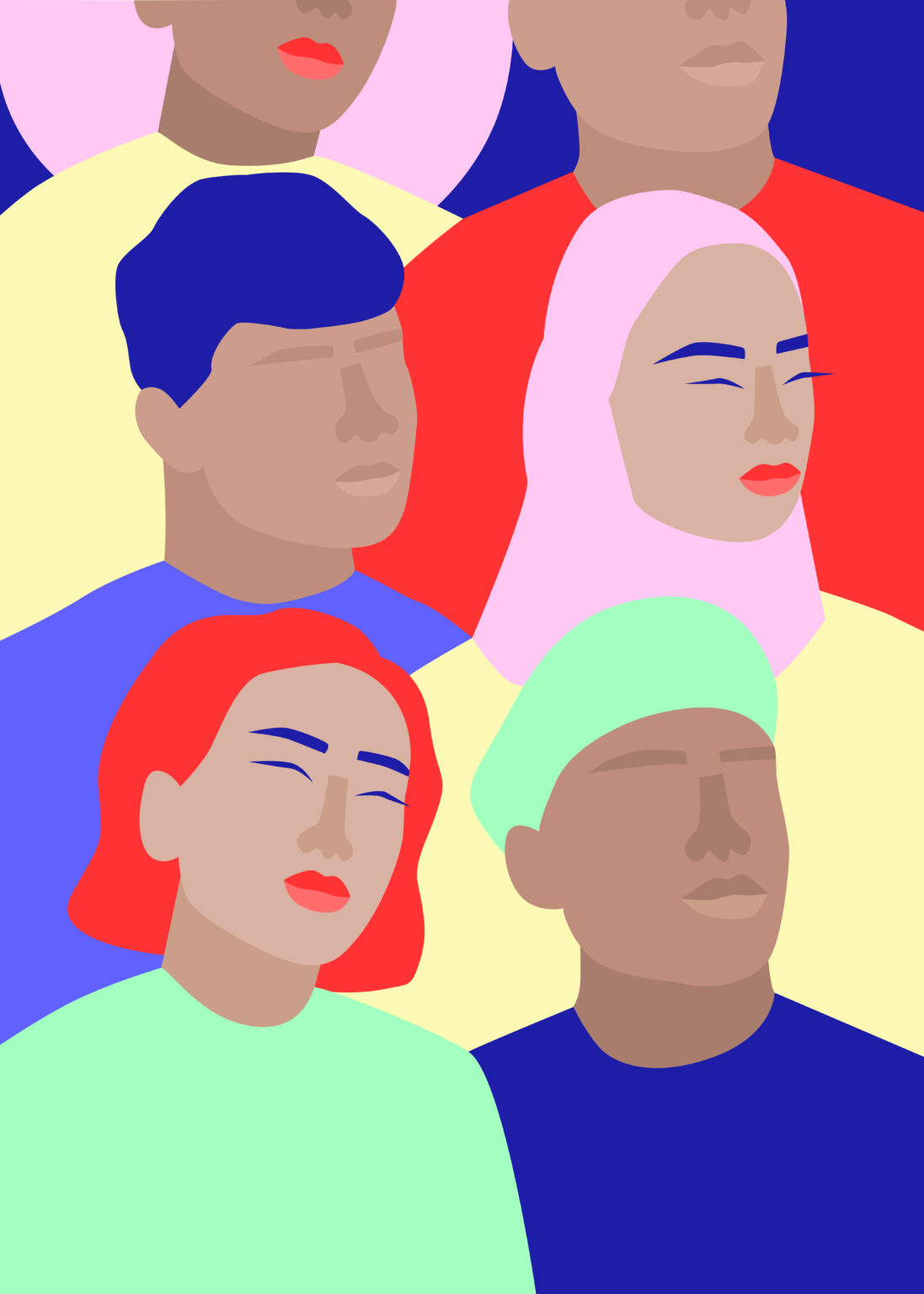
Why we launch this call
In 2023, ILGA-Europe launched a new programme focused on work done by and for racialised LGBTI communities. In 2024, we had the second iteration of this programme. With this third cycle in 2025, ILGA-Europe continues its commitment to providing funds and support for this part of LGBTI movement that addresses intersectional impacts of injustice, racialisation, racism and supremacy, and specific harms affecting the lives of racialised LGBTI communities across Europe.
Many LGBTI organisations and groups run by racialised LGBTI activists continue to face obstacles in accessing funding while they take on the burden of exposing structural oppressions, building and sustaining the resilience of racialised communities, and filling the gaps in provision of services, care and spaces for racialised LGBTI people.
ILGA-Europe recognises the effort and knowledge it takes to address intersectionality. We acknowledge a great value for the wider movement in making the work of racialised LGBTI activists more visible and better supported. This call aims to strengthen organisations run by racialised LGBTI activists and deepen solidarity with racialised LGBTI communities. We see an opportunity to share the learning from this programme to the wider movement, as we believe that solutions and approaches that include a few will pave the way and point to the solutions for many.
Aim of the program
The aim of this program is to address the intersectional impact of injustice, racialisation, racism and specific harms affecting the lives of racialised LGBTI communities across Europe.
This program will do it by:
- Supporting, strengthening and advancing the work of up to 13 European LGBTI organisations that are led by racialised LGBTI people and work with and for racialised LGBTI communities;
- Creating spaces for the organisations to exchange and build connections through holding regular partner meetings
Structure of the program
Participation in the program involves TWO components:
- Financial support of a project (up to €25,000 per project for 12 months), AND
- Regular partner meetings that will bring groups together (on-line) to strategise and share work and experiences (three meetings in 12 months).
Available funding
- We can support up to 13 organisations with grants in the amount of €20,000 to €25,000: up to 11 grants to the EU-based organisations and up to two grants to non-EU based organisations.
- The project has to run for 12 months: from 1 June 2025 until 1 June 2026.
Type of organisations and groups we will support
This call is aimed specifically for registered and non-registered[1] LGBTI organisations and initiative groups in Europe that are:
- Led by racialised LGBTI people and
- Working for and with racialised LGBTI communities[2].
Due to our donor’s limitations, we are only able to support organisations that are:
- Member organisations of ILGA-Europe as of 1 June 2025 (start of the project). If your application for membership is under consideration as of 30 March 2025 (the deadline for this application), you are eligible to apply[3].
Type of projects we are looking to support
We are looking for projects whose primary aim is to address the intersectional impact of injustice, racialisation, racism and specific harms affecting the lives of racialised LGBTI communities across Europe.
We will support projects that offer to do this through one (or several) of the following ways of working:
- Facilitating fairer/better access of racialised LGBTI communities to opportunities, services, spaces and care from which these communities have been historically excluded;
- Forging and advancing collaboration and partnerships with other actors: activist groups (racialised or not; LGBTI or beyond), media, authorities and/or service providers;
- Exploring, reclaiming and enhancing voices and experiences from racialised LGBTI communities to challenge existing structures, change existing practices, mobilise wider support, and engage the community;
- Strengthening internal organisational structures, skills and practices to build a sustainable presence for and with(in) the communities and wider civic society space.
Budget criteria
Budgets up to €25,000 per 12 months of the project are eligible. Only costs between 1 June 2025 to 1 June 2026 can be included in the budget[4]. The types of costs covered by this programme are direct project costs and can include:
- Personnel costs
- Travel and event costs (both physical and digital)
- Costs related to obtaining external expertise and/or services associated with the implementation of the project
- Interpretation and translation costs
- Communication activities and campaigns related to the aim of this call, including social media and traditional media fees, production of materials, design, printing
- A fair proportion of administrative costs or core organisational costs which are linked to the implementation of the project (rent, utilities, IT, technology, telecommunications, accounting, administrative fees, fiscal sponsor fees, depreciation of new and existing equipment).
Under this call, there is NO budget percentage limitation to cover personnel and consultancy costs, as long as they are directed towards the objective of the call. This means that you can include as many human resources or external personnel costs as needed, and these costs might represent an important share of your budget.
Organisational capacity building can be included. This means projects can incorporate training, internal learning for staff and/or volunteers and other activities aimed at building the knowledge and skills needed for organisations to meet the broader purpose of this call.
Time commitment
We are aware that many LGBTI organisations run by racialised LGBTI people operate on voluntary bases, with limited human, financial and time resources. Therefore, we want to communicate in advance the time commitment needed for this programme apart from implementing the project. This is the time needed to connect to other organisations within the programme, communicate with ILGA-Europe, and report back.
Participation in the programme comes with the following commitments:
- What: Three on-line meetings for programme partners to come together, share space and experiences, learn about each other’s work, build connections
When: July 2025 (kick-off), February 2026 (mid-way), and June 2026 (closing)
Time: 1h 30 mins each meeting
- What: Four progress calls with ILGA-Europe to discuss an ongoing work, implementation of the project, needs, challenges, opportunities
When: June and September 2025, January and April 2026
Time: 1h each call
- What: Interim financial report
When: 4 November 2025
Time: As required depending on your capacities and needed support from us
- What: Final financial and narrative reports[5]
When: mid-June 2026.
Time: As required depending on your capacities and needed support from us
We will schedule meetings in advance and in conversation with you.
ILGA-Europe staff that will work with you
In this programme you will be closely working with two ILGA-Europe colleagues: Nadzeya Husakouskaya and Antonella Cariello.
As a Programmes Officer, Nadzeya is the main contact between you and ILGA-Europe. They hold key elements of the programme – communication with partner organisations, organisation of connecting spaces, structure and design of the program, learnings for ILGA-Europe and the wider movement.
As a Finance and Grant Officer, Antonella oversees and supports financial aspects of the project implementation. She handles any grant management, budget and finance-related questions.
You can read more about both colleagues here.
Key Things to Consider
In selecting proposals, ILGA-Europe will prioritise projects that respond to the framework, aim, objectives, and areas of work of this call, and:
- Clearly communicate how injustice, racialisation, and racism are impacting racialised LGBTI communities in the local contexts (Questions 2.1, 4.1 and 4.2 in Application form)
- Present a well thought-through plan for how the work will be carried out and how it will contribute to positive outcomes for racialised LGBTI communities in the context and the obstacles (practical, political etc) you may face (Section 4 in Application Form and the Budget)
- Have strong ties to the local racialised LGBTI communities and connections to local LGBTI movement (or some parts of it) (Section 2 in Application Form)
- Work towards bridging gaps: in services, within and amongst the communities, with other groups and actors (Questions 4.1, 4.2, 4.3 and 5.1 in Application form)
- Strive to establish connections, collaborations, practices and tools that can live beyond the project’s lifetime (Questions 4.2, 4.3, and 5.1 in Application Form)
- Have a minimal financial capacity and some financial management system in place to implement the project (Section 3 in Application form and the Budget)
Do you have any questions?
- You can read Q&A document in the application package. It covers many questions that we received over the previous two iterations of the programme. It is useful to look through it! The Q&A document will be updated on 21 February and 21 March after on-line Q&A sessions.
- You can come to one of the online Q&A sessions we will hold – on 19 February, Wednesday, 12.00-13.00 CET (register) and 20 March, Thursday, 17.00-18.00 CET (register). The questions and answers from these sessions will be included into an updated version of Q&A document.
- While working on the budget, you can look at the example of the pre-filled budget we provided in the application package. It illustrates the information that needs to be included in the budget and formats in which to provide it to make financial aspects of the project clear.
- You can e-mail nadzeya@ilga-europe.org and get an answer via e-mail. All answers to the questions received via e-mail will make it to the updated Q&A document as well.
Application
- Proposals should be submitted using the application form and budget template to nadzeya@ilga-europe.org. The last day to submit your application (deadline) is 30 March 2025, Sunday, 23:59 CEST.
- We will inform all applicants about the outcomes of the selection process via the e-mail provided in the application by 1 May 2025 at the latest.
- Contracts will be signed with successful applicants by end of May 2025. Successful applicants should be available to respond to requests during May 2025.
- The timeline for all projects supported in this programme is fixed: Projects are to start on 1 June 2025 and end on 1 June 2026.
Advance planning information for successful applicants:
- Partner meetings will be scheduled for July 2025 (kick-off meeting) and February 2026 (mid-way meeting) as soon as the cohort of partner organisations is selected. The closing on-line meeting will happen in June 2026 and will be scheduled at the beginning of 2026.
- Progress calls with ILGA-Europe will be scheduled on a rolling basis.
- A financial interim report will be due on4 November 2025 and the final financial and narrative reports in mid-June 2026.
[1] Non-registered organisations and groups are eligible to apply, but must partner with a registered legal entity that is able to receive funds from ILGA-Europe. This entity cannot be a physical person.
[2] When we speak about racialised LGBTI communities, we are referring to LGBTI communities whose lives – and life experiences – are shaped and limited by racialised profiling, racist structures, policies, treatment and discrimination. Because intersectional oppressions are rooted in the ‘logic’ of a human hierarchy, with Whiteness and patriarchy as supreme, we know that harms will particularly affect people racialised as Black, as well as Indigenous people, people of colour, racialised minorities in Western and Northern Europe (such as Roma, Kurds, Sami people etc.) and in Central and Eastern Europe (such as Crimean Tatars, people from Central Asia and South Caucasus in Russia etc.
[3] There is more information about membership in the Q&A document in the application package.
[4] You can look at an example of the prefilled budget we provided in the application package. This can give you a clearer idea what information we need from you to include and in what format for us to be able better assess the financial part of the project.
[5] Full information and guidance on reporting financial and administrative requirements will be provided to successful applicants.
Statement: ILGA-Europe calls on Italian government to end anti-LGBTI rhetoric and violence
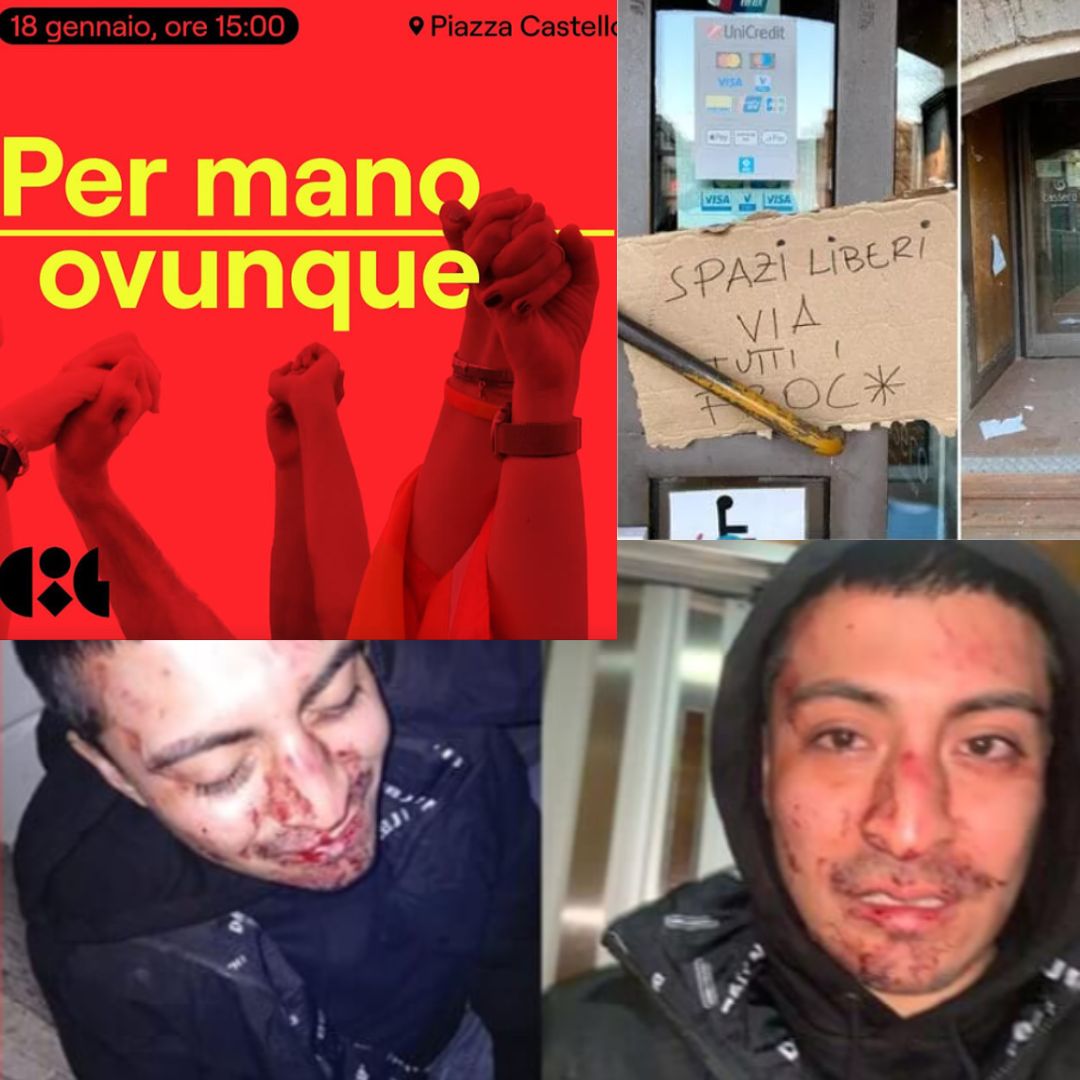
ILGA-Europe stands in solidarity with Italian LGBTI people who continue to face increased hatred and violence and calls on the Italian government to stop feeding a growing divide in Italian society
Over the last weeks, Italy has seen a new surge of LGBTI-phobic violence. There have been no less than four hate-motivated attacks on LGBTI people in the last four weeks, prompting a large manifestation tomorrow in Milan demanding the government take action.
According to the ILGA-Europe’s Rainbow Map, Italy still lacks crucial legal protection for LGBTI people, such as comprehensive hate crime and hate speech laws that would protect LGBTI people, as well as other minorities, from hatred and violence. This legislative gap is even more worrying at a time when violence against LGBTI people in Italy is alarmingly on the rise, exacerbated by the use of openly LGBTI-phobic rhetoric by some politicians. The persistent “witch hunt” against so-called “gender ideology” has created a fertile ground for justifying and amplifying LGBTI-phobic hatred within society. Such narratives not only perpetuate discrimination but also embolden those who act on their prejudices, further endangering the lives and well-being of LGBTI people.
In addition to the increased frequency and severity of LGBTI-phobic attacks (one of the attacks on New Year’s Eve, perpetrated by ten assailants on a gay couple who were holding hands, resulted in serious injuries to the couple – including a head injury and broken nose), the Cassero LGBTQIA+ Centre was vandalised with threatening messages which read: “Free space from faggots”. This targeting of an LGBTI organisation is evidence of the more systemic nature of the issue – those who would want to commit LGBTI-phobic violence have been emboldened by the rhetoric and actions of the ruling parties. A legislative project, the so-called ‘Zan’ law, was voted down in 2021. The law would have designated violence against LGBTI people and disabled people, as well as misogyny, a hate crime. Giorgia Meloni’s party voted against the law and publicly celebrated its defeat.
In light of these troubling developments, we urgently call on political leaders to initiate a meaningful process to establish legal protections for LGBTI individuals in Italy. Most pressingly, we demand that politicians, particularly influential figures within the government—such as Prime Minister Giorgia Meloni and Minister Eugenia Roccella—publicly and unequivocally condemn the growing wave of LGBTI-phobic violence.
Regardless of political considerations, it is the bare minimum for a government that claims to uphold democratic values to take a firm and unwavering stance against violence, especially when it targets minorities. Accepting any form of violence as “the new normal” is incompatible within a society that aspires to equality, dignity, and justice for all.
We urge immediate action to ensure that Italy will return to being a safer, more inclusive country where everyone is protected and valued, regardless of their sexual orientation, gender identity or sex characteristics.
ILGA-Europe’s Communications Support Group

This group is a semi-facilitated space—not a lecture or formal training. (If you’re looking for structured learning, check out our Skills Boost sessions.) Here, you’re encouraged to ask questions, share your opinions and experiences, experiment with ideas, and most importantly, enjoy the process! Of course, you’re welcome to simply listen in, but we hope you’ll dive in and make the most of this collaborative space.
Join us every three months for a 60-minute online session where we’ll:
- Learn from each other: Hear from LGBTI activists across Europe and Central Asia, sharing their unique communication journeys.
- Explore our questions and dilemmas: Get fresh perspectives and support from the group.
- Foster meaningful connections: Network with like-minded professionals tackling the same work as you.
Together, we’ll explore comms challenges, celebrate wins, and even vent (because we know a good vent can lead to valuable learning!). The first topic we’ll explore is: Should we make a statement? Activists often face pressure to respond to current events, but how do we determine when to speak out and when to stay silent? Join this session to engage in a thoughtful discussion with others!
Your hosts will guide the conversations in English. Take this opportunity to connect with fellow activists, grow your skills, and find solidarity in shared experiences.
The groups are planned on:
- February 26, Wednesday, 12:00 CET. Should we make a statement? How do we determine when to speak out and when to stay silent? Register for the first meeting.
- May 28, Wednesday, 12:00 CEST. Register for the second meeting.
- September 24, Wednesday, 12:00 CEST
- November 26, Wednesday, 12:00 CET
Joint statement welcoming CJEU judgment to halt unlawful gender title collection

The EU Court of Justice has judged that it is unlawful for France’s national railway company to force passengers to choose between ‘Mr’ and ‘Ms’ when purchasing train tickets.
Today, the CJEU issued a judgment in the case C-394/23 initiated by the Mousse Association, saying that it is unlawful for a railway company to collect a customer’s gender marker, saying this personal data is not necessary for the purchase of a train ticket and may create a risk of discrimination on grounds of gender identity.
The judgment concerns a case initiated by Mousse representing 64 individuals against France’s national state-owned railway company (SNCF) practice of forcing passengers to choose between the civil titles “Mr” or “Ms” when purchasing train tickets. The train company does not offer a third option and alleged that this data was necessary to personalise its commercial communication based on customers’ presumed gender identity.
The case relies on the General Data Protection Regulation (GDPR)’s principles of data minimisation and accuracy, as well as the fundamental EU law principle of non-discrimination.
The French court asked the CJEU to clarify if common practices in civil, commercial, and administrative communications can help determine whether data collection meets the GDPR’s requirements for being adequate, relevant, and necessary under Article 5(1)(c), and lawful under Article 6(1)(b) and (f). If so, collecting only customers’ titles like “Mr” or “Ms” might be considered necessary and compliant with the principle of data minimisation.
The CJEU was also asked whether the right of individuals to object to the use of their personal data by relying on their specific situation under Article 21 GDPR should be a determining factor in assessing the necessity of the mandatory data collection.
THE CJEU DECISION
The CJEU recalled that the principle of data minimisation requires that collected data be adequate, relevant and limited to what is necessary for the purposes for which those data are processed. The processing of personal data is lawful only if it is necessary for the performance of a contract or for the purposes of a legitimate interest
In this respect, the Court ruled that the personalisation of commercial communications based on presumed gender identity according to a customer civil title is not necessary as it is not objectively indispensable to the performance of a rail transport contract, contrary to what the SNCF and the French State alleged in this case. The Court stated that the railway company could opt for generic and inclusive terms, which are not linked to presumed gender identity, when addressing customers, as this would be a less intrusive solution.
Additionally, the Court rebutted SNCF’s argument that it pursued a “legitimate interest” as it did not comply with the conditions under GDPR to do so. Notably, collecting gender markers cannot be regarded as necessary when the fundamental freedoms and rights of customers prevail over the legitimate interest of data processors.
Importantly, the Court ruled that processing civil titles of customers can in some cases create a risk of discrimination on grounds of gender identity. This is the first time that the CJEU evokes the fundamental EU law principle of non-discrimination to protect the ground of gender identity for trans and non-binary people.
IMPACT
The importance of this judgement therefore extends beyond the applicant’s individual circumstances. All public and private organisations that are required to comply with GDPR in the EU will need to comply with this judgment and stop collecting gender markers when it is not strictly necessary in the light of the purposes for which this data is processed.
The judgment also underscores the broader issue faced by trans and non-binary people who are constantly forced to choose in their everyday lives between two options that do not correspond to their identity. Also, binary trans people, whose identity documents do not match their gender identity, will benefit from fewer mandatory forms asking for a gender marker, when it is not necessary to the service or contract at hand.
According to the EU Fundamental Rights Agency LGBTI survey 2023, almost two-thirds (64 per cent) of trans respondents felt discriminated against in the year before the survey, followed by more than half (51 per cent) of non-binary and gender-diverse respondents, where every second respondent experienced discrimination in the same period,. The survey also found that 15 per cent of non-binary and 35 per cent of trans people said they experienced discrimination when they had to show their ID. In contrast, only one per cent of cisgender endosex respondents reported such issues. Non-binary people make up the largest compound (65 per cent) of the trans community and tend to be younger.
REACTIONS
According to the claimant’s legal representative, Etienne Deshoulières: “The CJEU’s decision marks a significant shift in the relationship between the State and citizens. Previously, the State “owned” the data in civil-status records and prohibited people from modifying that data, except in exceptional circumstances. Now, each citizen “owns” their personal data and grants the State permission to process it within the limits set by the GDPR, including the principles of minimisation and accuracy. The binary distinction of gender under the law has long been the cornerstone of the system that discriminates against sexual and gender minorities. If this legal binary no longer exists, then a broad array of legal discriminations disappears. It would represent the culmination of decades of advocacy for LGBT+ rights.”
TGEU Expert Advisor, Richard Köhler, comments: “Sixty-five per cent of trans people in Europe identify as non-binary, a young and mobile group forced to navigate systems that don’t match their identity. This case signals progress: less paperwork, fewer binary boxes, and a future where EU law finally recognises and protects non-binary and trans lives. The next generation deserves nothing less.”
ILGA-Europe Senior Strategic Litigation Officer, Marie-Hélène Ludwig added: “Today’s ruling is crucial in putting an end to the discrimination on the grounds of gender identity faced by non-binary persons and all who do not identify within the gender binary, and who are forced to choose in their day-to-day lives between two options that do not correspond to their identity. This judgment will have far-reaching effects, as it clearly states that collecting gender markers when it is not strictly needed is not only unlawful but also potentially discriminatory. The judgement clearly sets an obligation for all businesses, organisations and public services to do away with unnecessary binary data collection, according to EU law.”
ILGA-Europe and TGEU provided support to Association Mousse and its lawyers, Etienne Deshoulières from Deshoulières Avocats and Johan Heymans, Yasmina El Kaddouri and Delphine Holemans from VS Advocaten, in this case.
Read Association Mousse’s full statement here.
A strategic shift in our social media presence

After a thorough review, we have made the decision to discontinue posting to our X account with immediate effect.
As an organisation dedicated to supporting LGBTI activist organisations in Europe and Central Asia, and advocating on behalf of the LGBTI movement, at ILGA-Europe we value the role social media can play in cultivating connection, raising awareness, and driving positive change. At the same time, we are mindful of growing concerns about the increasingly divisive nature of certain platforms, including X, and the challenges this poses for creating safe and impactful spaces for engagement.
Every organisation must carefully evaluate its social media strategy, balancing its mission with the evolving dynamics of digital platforms. After a thorough review, we have made the decision to discontinue posting to our X account with immediate effect. This was not an easy choice, but it reflects our commitment to adapting our approach in ways that best serve our members, mission, and values.
Why We’re Making This Change
We are committed to fostering meaningful conversations while not contributing to hateful narratives. We also take seriously our responsibility to create inclusive, supportive spaces. The rise of harmful content and inconsistent content moderation on X raised concerns about whether the platform aligns with our values and the needs of the LGBTI activists and communities we serve. Coupled with a significant decline in engagement and growing toxicity for our communities, we’ve found that our campaigns achieve greater impact on platforms like LinkedIn and Instagram, where there is more space for thoughtful discussions and meaningful connections.
What We Will Be Doing
As part of this strategic decision, we will be investing in a social media strategy, as part of a broader communications strategy that better aligns with our goals. We will focus on platforms like LinkedIn, Instagram and other new channels, including TikTok, Bluesky and Threads, where we can amplify nuanced messages, foster meaningful connections, and ensure safer, inclusive dialogue.
Listening, learning, and reflecting with our members and the movement will remain central to our approach as we navigate these changes together.
Staying Connected
We invite our online communities to continue engaging with us through our website, newsletter, and other platforms where we can share insights, updates, and opportunities to collaborate. Our X account will feature a pinned post explaining this change and guiding people to our other channels.
As we adapt to the evolving digital landscape, we reaffirm our commitment to creating a world where the human rights of LGBTI people are amplified, celebrated, and supported. Together, we will continue driving positive change, countering online hate, and amplifying the calls of the LGBTI movement across Europe and Central Asia.
- Keep our website in your bookmarks: https://www.ilga-europe.org/
- Subscribe to our monthly Rainbow Digest: https://www.ilga-europe.org/subscribe-to-our-newsletter/
- Follow us on Linkedin: https://www.linkedin.com/company/ilga-europe/
- Follow us on Instagram: https://instagram.com/ilgaeurope/
- Follow us on Facebook: https://www.facebook.com/ilgaeurope
- Follow us on TikTok: https://www.tiktok.com/@ilgaeurope
- Follow us on Bluesky: https://bsky.app/profile/ilgaeurope.bsky.social
- Follow us on Threads: https://www.threads.net/@ilgaeurope
- Listen to our podcasts, The Frontline: https://smartlink.ausha.co/the-frontline
Joint statement on today’s long-awaited judgment from the European Court of Human Rights on violations of LGBTI human rights in Armenia
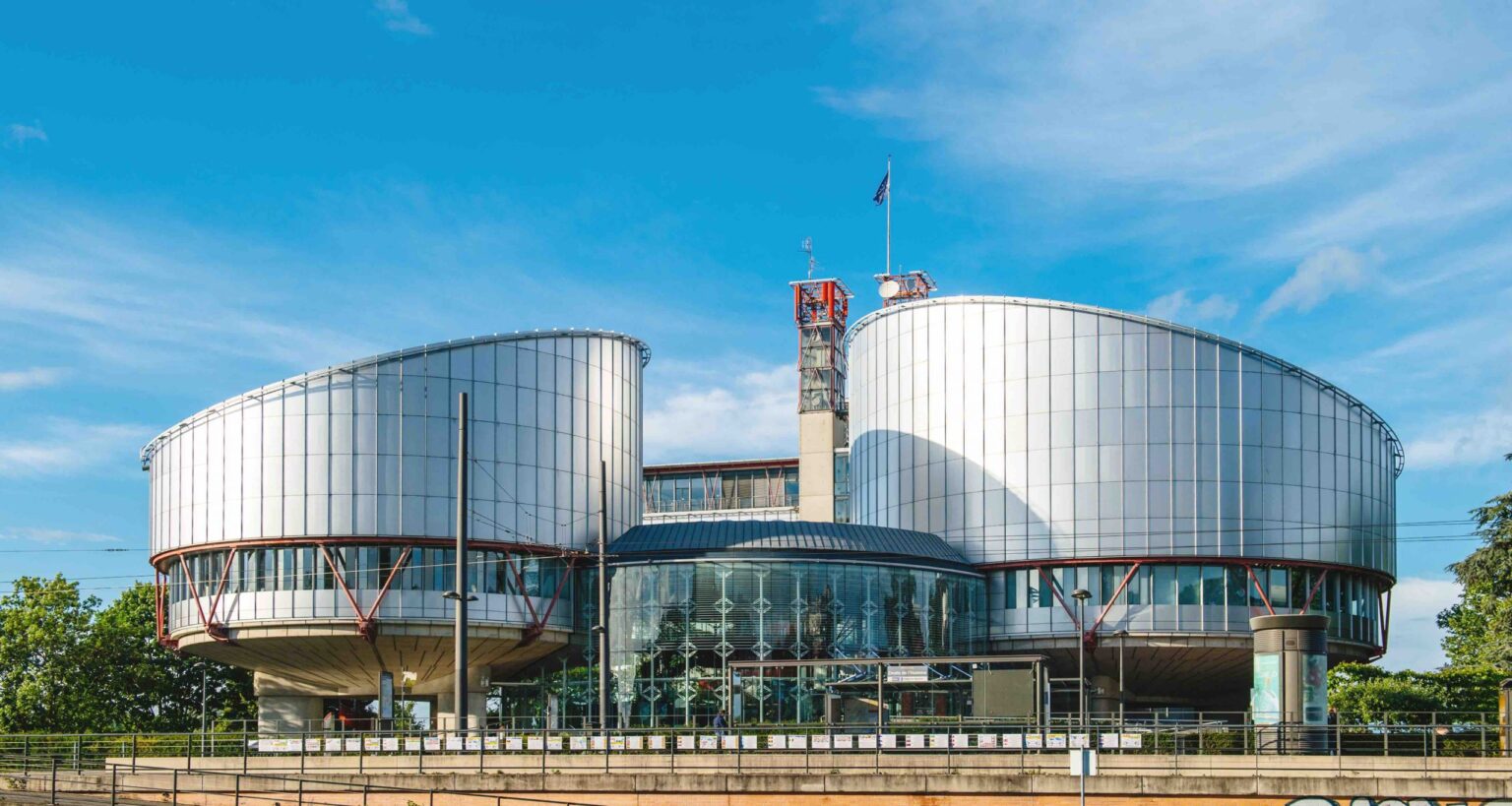
ILGA-Europe and TGEU celebrate the judgement of the European Court of Human Rights in the case of Minasyan and Others v. Armenia, upholding the rights of victims of homophobic and transphobic hate speech.
Today, the European Court of Human Rights issued a judgement in the case of Minasyan and Others v. Armenia. The case was brought forward by 14 Armenian human rights defenders and activists who supported and/or belonged to the LGBTI community and were victims of homophobic and transphobic hate speech. The Court found a violation of Article 8 of the European Convention on Human Rights (right to private and family life), taken alone and in conjunction with Article 14 of the Convention (prohibition of discrimination).
The case concerns the publication of newspaper articles in 2014 that contained discriminatory language and incitement to discrimination against the applicants due to their association with the LGBTI community and/or their perceived sexual orientation or gender identity, and which included links to the applicants’ social media profiles. The article followed the applicants’ comments challenging Armenian Eurovision Song Contest jury members’ statements criticising the winner that year, Conchita Wurst. The applicants instituted civil proceedings against the newspaper but the Armenian courts dismissed the case and ignored the allegations of discrimination based on actual or perceived sexual orientation and gender identity.
The European Court ruled that the publications in question propagated hatred, hostility and discrimination against a minority, the LGBTI community, which was one of the main targets of widespread hostility, hate speech and hate-motivated violence in the country. It also confirmed that the publications were meant to incite intolerance and hostility against the applicants, with the clear intention of intimidating them and causing them real harm. The Court had no doubt that such expressions affected the applicants’ psychological wellbeing, dignity, and reputation and constituted serious attacks on their rights guaranteed by the Convention.
The Court also observed that there was only a civil remedy available to the applicants, and while in theory, such remedy was capable of providing effective protection from homophobic hate speech, it had doubts about its effectiveness in practice. The Court found that the domestic courts failed to balance the competing interests between the journalists’ right to freedom of expression and the applicants’ right to respect for their private life. As a result, the Court found that the domestic courts failed to recognise the authors’ hostile tone and intentions and the impact that his statements had on the applicants’ Article 8 rights. The Court ruled that by doing so, the domestic courts failed to protect the applicants against hate speech and to address the discriminatory nature of the hateful statements.
ILGA-Europe and TGEU jointly filed a third-party intervention in this case submitting that
- homophobic and transphobic statements constitute hate speech that violates Convention rights due to their humiliating and stigmatising effect;
- States have a positive obligation under the Convention to protect against hate speech on the basis of sexual orientation and gender identity
- and that LGBTI persons and affiliates in Armenia are prevented from seeking redress against hate speech and continuously struggle to enjoy equality due to the lack of adequate legal framework and the hostile attitudes against the LGBTI community.
According to Hasmik Petrosyan, Lawyer at Pink Armenia: “This is already the second judgement by the ECtHR which states that Armenia has failed to provide effective protection for LGBT people against hate speech. Since the judgement on the case Oganezova v. Armenia, for two and a half years, the State could not provide evidence that the Criminal Code article on liability for public calls to violence is being effectively applied in practice. At the same time, the Government has been discussing the anti-discrimination law for almost ten years and the draft still lacks effective mechanisms to protect LGBT people. Pink Armenia will be engaged in the monitoring of the implementation of the judgment.”
TGEU’s Senior EECA Programme Officer, Daniyar Orsekov, said: “TGEU welcomes the judgement of the European Court of Human Rights on Armenia where trans people have little to no legal protections. At a time when anti-LGBTI sentiment is being enshrined in law and therefore further legitimised in the Caucasus, this judgement sets an important legal precedent that can inspire activists to pursue justice and encourage courts in Armenia and the region to uphold the rights of LGBTI communities. In environments where hate speech is allowed to flourish, acts of hate-fuelled violence are not far behind. We call on the Armenian authorities to recognise homophobic and transphobic speech as hate speech and protect LGBTI communities.”
ILGA-Europe’s Senior Strategic Litigation Officer, Marie-Hélène Ludwig, added: “This is a long-awaited judgment that makes clear that States should provide effective protection against homophobic and transphobic hate speech not to foster impunity. We trust that Armenian authorities will put in place the necessary legislative measures to explicitly prohibit discrimination on the grounds of sexual orientation and gender identity and bias-motivated crimes to prevent similar cases from taking place in the future.”
Read Pink Armenia’s full statement on the judgement here: https://pinkarmenia.org/en/news-events/echr-blacklist/
The FutureLab programme launch

Important update
We accept Statements of Interest until 3 February, 10 am CET, but partner selection is on hold.
Regrettably, the partner selection and funding decisions in the FutureLab programme are temporarily on hold due to the suspension of the U.S. foreign assistance globally.
Our priority remains to resume the programme if, and as soon as, the funding is released. The current suspension puts the programme on hold until the end of April.
As many organisations have already put time into developing their proposals, we took the decision to still accept Statements of Interest by the original deadline of 3 February, 10:00 CET. This will support a smooth restart of the selection process if conditions allow. Please note the updated timeline in the sections below.
We recognise the uncertainty this situation creates, along with other impacts of the U.S. funding suspension on many in the movement.
All organisations that decide to go ahead with submitting Statements of Interest despite the uncertainty will receive short status updates about the FutureLab as new information comes in.
- Apply with a Statement of Interest by: 3 February 2025, 10:00 CET/ Brussels time
- Please note that partner selection and funding commitments are currently on hold until the end of April due to the global suspension of U.S. foreign assistance, operationalised as a “stop work” order.
- Programme and selection process will be resumed if, and as soon as, the funding is released.
- All organisations that decide to submit Statements of Interest will receive updates about the status of the programme as new information comes in.
- The programme and funding period are expected to last 24 months from the launch of the partner grants.
- Partner profile: LGBTI organisations in Albania, Bosnia and Herzegovina, Bulgaria, Croatia, Czech Republic, Hungary, Kosovo, Montenegro, North Macedonia, Poland, Romania, Serbia, Slovakia, and Slovenia
Purpose and scope
The FutureLab is a transformative programme aimed at fostering social acceptance and inclusion for LGBTI people and at building knowledge and skills in our movement to be strategic and impactful in this work.
The programme is grounded in the idea that LGBTI equality is not just about changes in laws and state policies – it is about reshaping how communities, sectors, institutions, and overall societies perceive, embrace and embed diversity into their systems and practices. We only create lasting societal change by changing the underlying societal attitudes, practices and structures that perpetuate exclusion and polarisation.
At the heart of the programme will be a two-year partnership with 22 LGBTI organisations across 14 countries in Central Europe and the Western Balkans: Albania, Bosnia and Herzegovina, Bulgaria, Croatia, Czech Republic, Hungary, Kosovo, Montenegro, North Macedonia, Poland, Romania, Serbia, Slovakia, and Slovenia.
Through funding, convenings, and learning and capacity strengthening opportunities, the programme will resource, strengthen and amplify diverse local strategies of LGBTI organisations to create deeply rooted social acceptance and inclusion.
Building on our collective learning and implementation journey with partners in the programme, we will consolidate and offer to the wider movement the knowledge and skills in support of strong and impactful strategies for social acceptance and inclusion.
Programme highlights
The FutureLab is designed as a partnership that combines funding, learning, strategizing and networking activities and relies on partners’ interest in and commitment to the collective.
As a partner, you will get:
- Funding for your vision: Up to 60,000 euro over two years towards a focused strategy on a relevant aspect of social acceptance and inclusion, rooted in your socio-political reality; funds are awarded in two consecutive annual grants of up to 30,000 euro each;
- A learning community: You will be part of a group of 22 partner organisations working on diverse social acceptance and inclusion projects, and we will learn alongside each other at online and in-person learning and strategic events;
- Support to your strategy: Throughout the programme, you can work with consultants to refine specific aspects of your strategy and its implementation when necessary;
- Amplification and networking opportunities: Share your lessons and successes at the ILGA-Europe Annual Conference and other movement convenings and contribute to collective learning across the LGBTI movement. The programme will offer partner scholarships to support attendance.
The FutureLab seeks partners ready to drive impactful, localised work that advances social acceptance and inclusion for LGBTI people.
What we fund
The FutureLab will fund 16 organisations in Central Europe and 6 organisations in the Western Balkans that:
- Advance meaningful and lasting social acceptance and inclusion for LGBTI people;
- Focus on a specific aspect of acceptance and inclusion that addresses critical needs and opportunities within their national context;
- Propose concrete and well-defined initiatives aimed at achieving tangible and measurable change;
- Build on the organisation’s past and current work, leveraging existing expertise, relationships, and insights.
This funding is intended to support initiatives that are both strategic and actionable, contributing to sustained progress within their local contexts.
Proposals can focus on one or both aspects of the programme:
- Strategic approaches to fostering social acceptance
Initiatives that aim to shift societal attitudes and behaviors by developing strong collaborations and relationships with relevant stakeholders. These initiatives should promote genuine understanding through, among others, direct outreach, dialogue, and partnership; and empowering and equipping public opinion leaders with the knowledge and tools to be active allies within their domains and beyond. Awareness-raising campaigns, general narrative development and similar work will not be prioritised in this programme.
- Social inclusion initiatives
Initiatives that embed inclusive practices and systems within specific public and private institutions and spaces, such as education, healthcare, employment, business, sports, and cultural sectors. These initiatives should build partnerships with key actors in the relevant sectors and may involve joint efforts between LGBTI organisations and other social justice organisations to create broad-based support for inclusion.
Who can apply
The FutureLab invites applications from LGBTI organisations that:
- Are rooted and actively working in one of the 14 target countries in Central Europe and the Western Balkans (see the list at the top);
- Propose focused, context-aware projects on social acceptance and inclusion: your project should define a clear and tangible goal that aligns with your organisation’s ongoing work, builds on past achievements or conclusions, and responds to the unique socio-political realities in your country;
- Are interested in and committed to learning alongside other partners and contributing to the movement with their experience: participation in programme activities is expected;
- Demonstrate capacity to manage funding: applicants should have recent experience handling grants of a similar size and scope, with established systems to manage a 2-year funding cycle effectively;
- Have other funding sources: organisations must show confirmed funding for 2025 that exceeds the annual grant amount provided by this programme (30,000 euros).
Joint applications of LGBTI organisations are welcome but do not automatically increase chances of your success. Organisations applying jointly can apply for up to 60,000 euro per year/ 120,000 for the duration of the programme.
How to apply
- To apply, submit a Statement of Interest using this template by 10:00 am CET/ Brussels time on 3 February 2025 to Seka Topal, Programmes Officer, seka@ilga-europe.org.
- All applicants will be notified of the receipt of their submission via email in the week of 3 February.
- Partner selection and funding commitments are currently on hold until the end of April due to the global suspension of U.S. foreign assistance, operationalised as a “stop work” order.
- Programme and selection process will be resumed if, and as soon as, the funding is released.
- All organisations that decide to submit Statements of Interest will receive updates about the status of the programme as new information comes in, throughout February-April.
- The programme and funding period are expected to last 24 months from the launch of the partner grants.
- If, and once the funding is released and the programme is resumed, successful applicants will be offered a month to submit a full proposal (narrative and budget).
- Projects are expected to last 24 months, with a renewal after the first year.
Questions?
- Reach out with questions to ILGA-Europe’s Programmes Officer, Seka Topal, at seka@ilga-europe.org.
Documents
Lithuanian Court Declares anti-LGBTI law unconstitutional
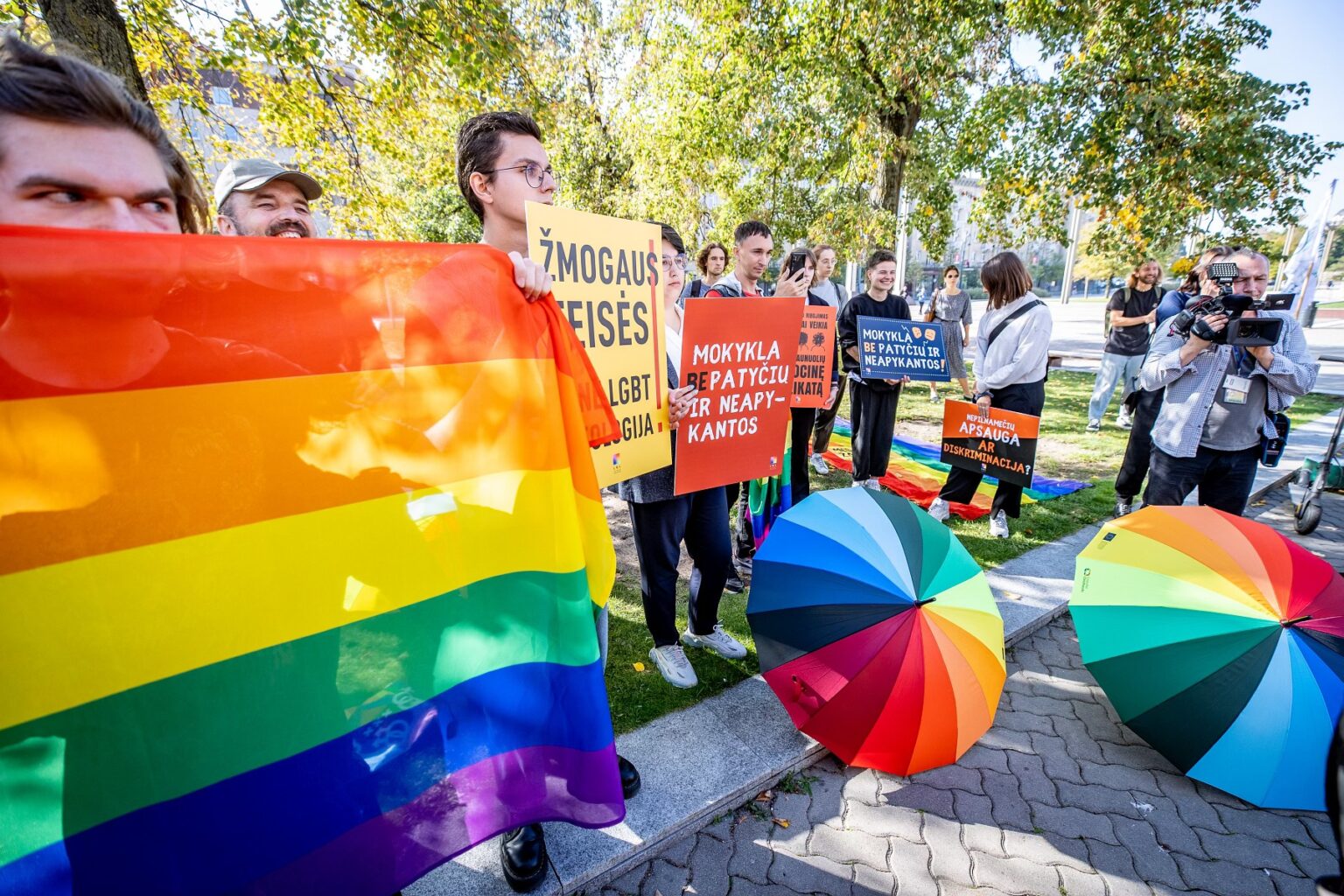
In a significant decision yesterday, Lithuania’s Constitutional Court ruled that a 15-year long ban on public depictions of LGBTI families should be repealed.
The Constitutional Court of Lithuania has declared the anti-LGBTI provisions of the Law on the Protection of Minors from Negative Effects of Public Information unconstitutional. These provisions, in place since 2009, had prohibited the depiction of LGBTI families in the public sphere, effectively stifling representation at public events and in the media.
The decision follows the European Court of Human Rights’ 2023 ruling in Macatė v. Lithuania, which found the law to violate Article 10 of the European Convention on Human Rights, safeguarding the right to freedom of expression. ILGA-Europe supported this case through a third-party intervention alongside Article 19 and the International Justice Clinic.
ILGA-Europe in association with the Lithuanian Centre for Human Rights and the Human Rights Monitoring Institute also supported our member organisation, LGL, through a Rule 9 submission to the Committee of Ministers of the Council of Europe concerning the implementation of the Macatė judgment.
The court’s reasoning empahsizes that:
- Information about diverse family models cannot be deemed inappropriate for minors.
- Laws must uphold respect for human rights, dignity, equality, pluralism, and tolerance.
- Minors deserve access to information that fosters their development into mature, well-rounded individuals.
According to Katrin Hugendubel, Advocacy Director at ILGA-Europe: “This landmark ruling marks a significant step towards ensuring that the rights of LGBTI people are respected in Lithuania. With this ruling, the anti-LGBTI provisions become ineffective and cannot be applied anymore. This is another confirmation from a highest courts that such laws are a violation of human rights and other courts should follow suit.”
Find out more about the current situation of protection of human rights of LGBTI people in Lithuania, on our interactive Rainbow Map.
For further context and details, see LGL’s statement here.